If the U.S. wins its appeal, Julian Assange will face prosecution under a severe espionage law with roots in the British Official Secrets Act that is part of a history of repression of press freedom, reports Joe Lauria.
A Long History of US Repression of a
Free Press, Despite the Constitution
1950 Amendment Made ‘Practically Every Newspaper in the US and All Publishers, Editors and Reporters into Criminals Without Their Doing Any Wrongful Act’
‘
By Joe Lauria
Special to Consortium News
 From its earliest years the United States has found ways to deny the rights of a free press when it was politically expedient to do so.
From its earliest years the United States has found ways to deny the rights of a free press when it was politically expedient to do so.
One of the latest ways was to arrest WikiLeaks publisher Julian Assange two years ago today and to indict him — the first time a publisher and journalist has ever been charged under the 1917 Espionage Act for possessing and publishing state secrets.
Though several U.S. administrations had come close to punishing journalists for revealing defense information, they all pulled back, until Assange. They were restrained because of a conflict with the First Amendment, which prohibits Congress from passing any law, including the Espionage Act, that abridges press freedom.
Until that legal conflict is resolved in court, resulting in parts of the Espionage Act being found unconstitutional, the language of the Act threatening press freedom remains. Bolstered by 1950 amendments to the Act, the Donald Trump administration crossed a redline to arrest a journalist. A 1961 amendment made it possible to indict a non-U.S. citizen, acting outside U.S. territory.
The Trump administration’s first indictment of a publisher opened an alarming precedent for the future of journalism.
President Joe Biden’s Department of Justice has not reversed Trump’s move to continue to seek Assange’s extradition from Britain though it could have. Instead it decided on Feb. 13 to pursue the appeal of Judge Vanessa Baraitser’s decision not to extradite Assange to the U.S. on health grounds. If the U.S. should win on appeal, Assange will be brought to the Eastern District of Virginia to face 17 Espionage Act counts, amounting to 175 years in prison, as Baraitser challenged none of those counts in her judgement.
Threats to press freedom are an integral part of U.S. history. Assange’s arrest and indictment comes within a long line of government repression of a free press, first by the British against American colonists, and then by the U.S. government, which based the Espionage Act on the British Official Secrets Act.
Possession and Dissemination
Assange did not pass state secrets to an enemy of the United States, as in a classic espionage case, but rather to the public, which both the U.S. and British governments might well consider the enemy.
Assange revealed crimes and corruption by the state. Punishing such legitimate criticism of government historically amounted to a charge of sedition, but two sedition acts were repealed in the U.S. shortly after they were made law and are no longer on the books.
Other journalists and publishers in the past have been prosecuted under the Espionage Act, but mostly for criticizing and trying to curtail the military draft during the First World War.
Assange became the first journalist prosecuted under sections of the Act that make it a crime to have (or even attempt to have) unauthorized possession of defense material, and separately, to communicate it, since technically neither he nor anyone working for WikiLeaks were authorized to do so.
The language used in his indictment based on the Espionage Act is so broad that theoretically anyone who has shared a classified WikiLeaks publication on social media could also be liable to prosecution, not to mention the many mainstream media organizations that routinely report on and quote from classified material, including from WikiLeaks.
The overly broad language means the government does not generally have to prove that the intent was to harm the U.S., only that a defendant, in this case Assange, knew it could.
Neither does the possession and publication of classified information have to cause any actual harm to the U.S. The government does not need to prove that publication actually threatened national security.
Intent, Retention, Communication & Person
The main issues involving Assange’s Espionage Act indictment and the history of Anglo-American espionage legislation are: a) intent: whether motive is relevant to prosecution and whether a public interest defense is possible; b) person: who is liable for prosecution, whether only government officials, normally the source of leaked secrets, or anyone, including journalists who publish them; c) retention: whether mere unauthorized possession is a crime; and d) communication: the laws as they have regarded unauthorized communication of defense information.
These four aspects of espionage laws on both sides of the Atlantic evolved in numerous complex ways over the century between 1889 and 1989, in particular how they have affected journalism. But earlier governments also found ways to choke off press freedom.
A History of Prosecuting Speech
While Assange is the first journalist indicted for possessing and disseminating classified information there is a long history of prosecuting speech in America.
The classic case of a publisher being prosecuted for publishing material critical of a government authority, on the territory of what would become the United States, took place in 1735 in the British colony of New York.
William Cosby, the governor of the colony, put John Peter Zenger, publisher of The New York Weekly Journal on trial for printing an article accusing Cosby of rigging elections and other corruption.
Though the judge ordered that Zenger be found guilty based on the libel law at the time (which criminalized criticism of the government even if true) the jury acquitted Zenger, arguing that the law was unjust. This historic case of jury nullification paved the way for the First Amendment after the American Revolution.
“Morris called Zenger’s case ‘the germ of American freedom … which subsequently revolutionized America.’”
If Assange were to be extradited and go on trial in Alexandria, Virginia, a jury ignoring the Espionage Act’s repressive restrictions on press freedom could be Assange’s best hope for freedom. Such an event could also pave the way for a successful constitutional challenge of the law on First Amendment grounds.
Genesis of First Amendment
The Zenger case was referred to 52 years later in the 1787 U.S. Constitutional Convention by Gouverneur Morris, a New York signer of the Declaration of Independence. Morris called Zenger’s case “the germ of American freedom, the morning star of that liberty which subsequently revolutionized America.” One of the many parts of British common law American rebels opposed was that truth was no defense in a libel case.
Though the Virginia colonial legislature had passed a Declaration of Rights in 1776 that included the line, “The freedom of the press is one of the greatest bulwarks of liberty, and can never be restrained but by despotic Governments,” and though eight of the other 12 colonies passed similar language, there was resistance to this and other parts of a declaration of rights being adopted at the Constitutional Convention.
After more than three years of debate, the Bill of Rights was added to the Constitution in December 1791. The first of these rights says:
“Congress shall make no law respecting an establishment of religion, or prohibiting the free exercise thereof; or abridging the freedom of speech, or of the press; or the right of the people peaceably to assemble, and to petition the Government for a redress of grievances.”
1798 Sedition Act
Just eight years after the adoption of the Bill of Rights, press freedom had become a threat to John Adams, the second president, whose Federalist Party pushed through Congress the Alien and Sedition Laws. They criminalized criticism of the federal government:
“To write, print, utter or publish, or cause it to be done, or assist in it, any false, scandalous, and malicious writing against the government of the United States, or either House of Congress, or the President, with intent to defame, or bring either into contempt or disrepute, or to excite against either the hatred of the people of the United States, or to stir up sedition, or to excite unlawful combinations against the government, or to resist it, or to aid or encourage hostile designs of foreign nations.”
Congress did not renew the Act in 1801 and President Thomas Jefferson pardoned prisoners serving sentences for sedition and refunded their fines.
Prosecuting the Press in the US Civil War
Freedom of the press next came significantly under attack in the lead up to the 1860-65 U.S. Civil War. Newspaper editors who campaigned for the abolition of slavery were attacked by mobs, sometimes directed by elected officials. More than 100 mobs attacked abolitionist newspapers. In 1837 an editor was killed by a mob, one of whose organizers was the Illinois attorney general.
During the war numerous editors and journalists were arrested in the North. “Throughout the war, newspaper reporters and editors were arrested without due process for opposing the draft, discouraging enlistments in the Union army, or even criticizing the income tax,” according to the First Amendment Encyclopedia.
Grand juries in New York and New Jersey presented a list of newspapers condemned for calling the conflict an “unholy war.” The Post Office was ordered to stop delivering those newspapers and “U.S. marshals in Philadelphia seized copies of the listed newspapers as they arrived by train.”
The encyclopedia says,
“In the vast majority of instances, the government restrained the free press without any legal process. The military routinely arrested newspaper editors and closed their presses; military tribunals banished some of them to the Confederacy for encouraging resistance.”
Secretary of State William Seward ordered the arrest of an editor from the Freeman’s Journal for allegedly treasonous statements and Secretary of War Edwin Stanton “authorized a military governor to destroy the office of the Sunday Chronicle in Washington.”
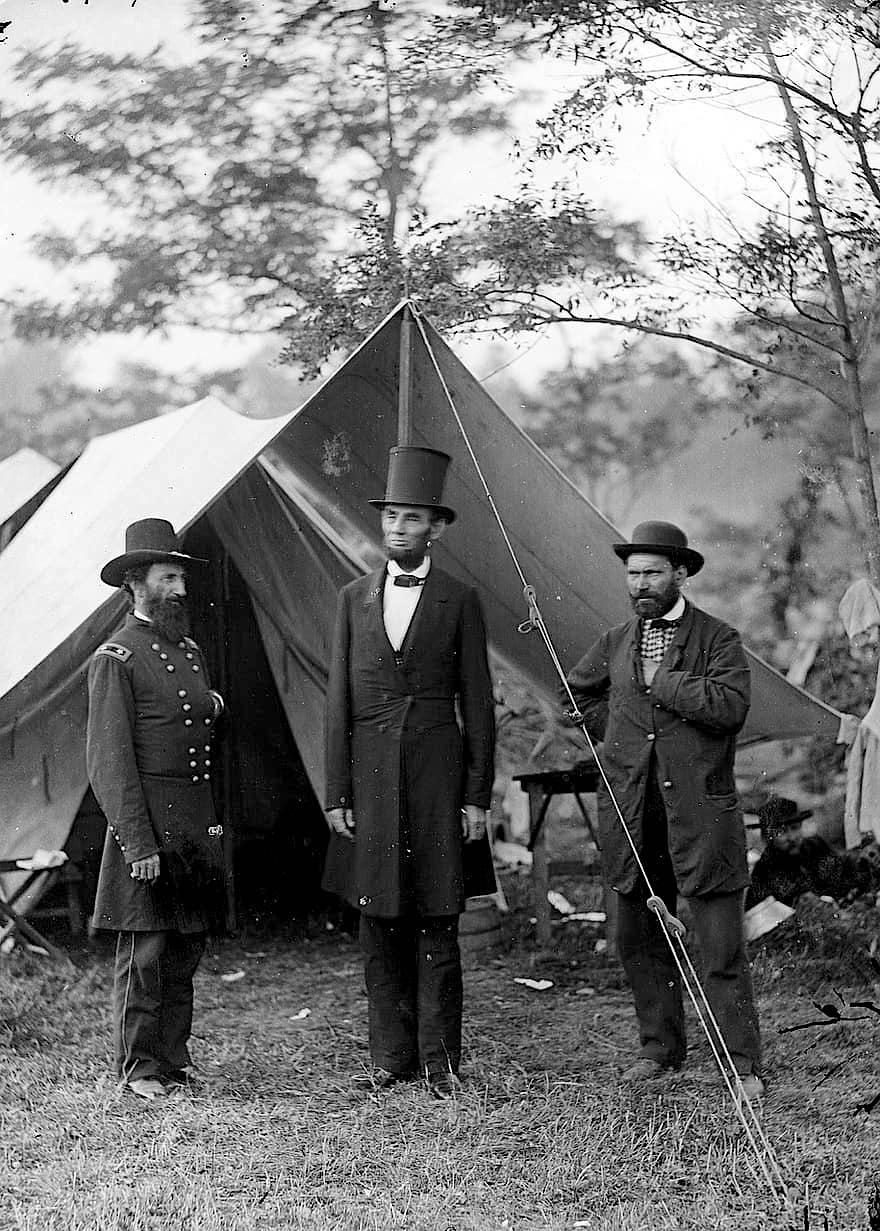
Allan Pinkerton, Lincoln and Gen. John McClendand. (Mathew Brady Photographs of Civil War-Era Personalities and Scenes, 1921 – 1940 Record Group 111: Records of the Office of the Chief Signal Officer, 1860 – 1985)
President Abraham Lincoln was faced with a dilemma, which he posed in a July 1861 speech: “Must a government of necessity, be too strong for the liberties of its own people, or too weak to maintain its own existence?” In trying to strike a balance, Lincoln reversed an order by Gen. Ambrose Burnside to suspend the Chicago Times and criticized Gen. John Schofield for arresting the editors of the Missouri Democrat.
The greater concern was that Confederate generals read Northern newspapers to learn of Union troop movements, an issue that would appear 50 years later in the Espionage Act. In 1862 Lincoln set up military trials for people agitating against the military draft, an issue that would also be later codified into the Act.
1889 Official Secrets Act & the Provenance of the Espionage Act
The 1917 U.S. Espionage Act under which Assange is charged is descended from the 1889 British Official Secrets Act. The Espionage Act replaced the 1911 U.S. Defense Secrets Act, which was based on Section 1 of Britain’s legislation, the Official Secrets Act of 1889.
The language of this section of the Defense Secrets Act is in places nearly identical with the Official Secrets Act. Some of that language has survived in the Espionage Act to ensnare Assange.
The 1889 British Official Secrets Act says:
While the 1911 U.S. Defense Secrets Act says:
1889 Official Secrets Act
The 1889 Official Secrets Act was enacted in the midst of continuing unrest in Ireland and British tension with Russia over Afghanistan, hyped by exaggerated press reports of Russian designs on British India. It was also an era of freelance British spies abroad in the empire. The Act came 16 years after the establishment of the Intelligence Branch at the British War Office. Prior to 1889, larceny was the only law against obtaining and disclosing government secrets.
One of the cases that may have led directly to the Act was that of Charles Marvin, a clerk at the Foreign Office, who supplemented his income by freelancing articles to a newspaper. In one 1878 piece he reproduced from memory a secret British treaty with Russia, but the case against him was dismissed because he never physically removed the document from the Foreign Office. If Marvin were indeed the catalyst for the Official Secrets Act, it can be said that it came about to stop a journalist in the future from illegally obtaining and publishing state secrets.
The 1889 Act “is a classic piece of Victorian legislation, clear in some ways, vague in others, but significantly more liberal than what followed,” said Consortium News legal analyst Alexander Mercouris. “Section 1 of the 1889 Act is clearly concerned with spying, though the language is sufficiently vague that in theory it could be stretched to include other forms of disclosure. However I doubt that Victorian judges would have allowed it to be used for purposes other than prosecuting genuine acts of spying.”
Significantly, the 1889 Act included an explicit public interest defense, but only for government employees.
“Where a person, by means of his holding or having held an office under Her Majesty the Queen, has lawfully or unlawfully either obtained possession of or control over any document … at any time corruptly or contrary to his official duty communicates or attempts to communicate that document … to any person to whom the same ought not, in the interest of the State, or otherwise in the public interest, to be communicated at that time, he shall be guilty of a breach of official trust.” (Emphasis added.)
The public interest defense was added to the bill after objections were made in Parliament that the Act might penalize disclosures of government corruption and misconduct.
Section 1 of the Act criminalized any person for mere unauthorized possession and even unauthorized “knowledge” of any secret information (this clearly to prevent memorization of secrets, as Marvin had done). It also made it a crime to communicate such information to an unauthorized person. Even an attempt to do these things was a crime. Assange would have technically been liable under this part of the Act without a public interest defense, as he is not a government employee.
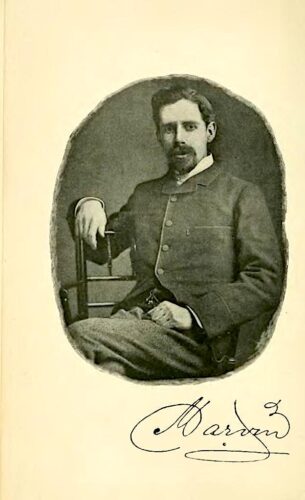
Charles Marvin. (From his 1883 book The region of the eternal fire; an account of a journey to the petroleum region of the Caspian. London, W.H. Allen & Co. University of California Libraries, digitalized by MSN Books.)
Section 2 related only to government officials, who would be guilty of a breach of trust if that official “corruptly or contrary to his official duty communicates or attempts to communicate that document, sketch, plan, model, or information to any person to whom the same ought not to be communicated at that time.”
Anyone “inciting” or “counseling” another person to commit an offense under the Act could also be prosecuted. First introduced here, the offense of “incitement” has survived in the current U.S. Espionage Act and was part of the charge against Assange, who is accused of having “knowingly and unlawfully obtained and aided, abetted, counseled, induced, procured and willfully caused [Chelsea] Manning to obtain documents…”
Jurisdiction of the 1889 Act was limited to “Her Majesty’s dominions,” though government officials could be prosecuted for violations anywhere in the world. Mere possession and communication were misdemeanors, while passing state secrets to a foreign nation was a felony.
This first espionage law, which formed the basis of all such laws that would follow in the U.S., Britain and the Commonwealth (including the espionage law in Assange’s native Australia) made it a crime (even for the press) to possess state secrets without authority and to communicate those secrets. Subsequent versions in Britain and the U.S. refined and reinforced this basic theme, with some important changes.
1911 U.S. Defense Secrets Act
Before the 1911 U.S. Defense Secrets Act, the only U.S. laws against espionage were those relating to treason, theft of government property and unlawful entry onto a U.S. military base.
Just three paragraphs long, the language contained in the Defense Secrets Act is closely aligned with the Official Secrets Act. Section 1 of the DSA covers any person “obtaining” defense information “to which he is not lawfully entitled.” Anyone who “receives or obtains” such information “without proper authority” also broke this law.
A person who “willfully” and without authority “communicates or attempts to communicate” such information to “any person not entitled to receive it” was in breach of the Act. Section 2 spells out a ten year prison sentence if secrets were passed to a foreign government.
1911 Official Secrets Act
In October 1909 the Secret Service Bureau was created by the Foreign Office, the War Office and the Admiralty to deal primarily with “an extensive system of German espionage.” The bureau was split into the domestic service, MI-5, and foreign, MI-6. Both agencies today acknowledge that the German espionage scare that led to their creation was mostly media hype. The MI-5 website says:
“‘Refuse to be served by a German waiter’, the Daily Mail advised its readers. ‘If your waiter says he is Swiss, ask to see his passport.’ Such alarmism reflected the tensions caused by the Anglo-German naval arms race and the approach of the First World War. Most of the ‘spies’ who persuaded Whitehall that it was faced with ‘an extensive system of German espionage’ in Britain were figments of the media and popular imaginations.”
Nonetheless, just two years after the bureau’s creation, and six months after the passage of the U.S. Defense Secrets Act, the British parliament reenacted in a single day after one hour of Commons debate its revised Official Secrets Act on Aug. 22, 1911. MP Sir Alpheus Morton said it was “very unusual and a very extraordinary thing to pass such a Bill without an opportunity of discussing it. Although I do not wish to insist upon the point, I submit that all the stages of a Bill ought not to be dealt with in this House without a proper opportunity of discussing every Clause.”
Removed from the 1889 Act was the explicit mention of a public interest defense.
The 1911 Official Secrets Act also added an alarming Section 2, which was not discussed at all in Parliament or the press before passage, saying it was no longer necessary to prove one’s guilt — the appearance of a crime was enough.
“(2) On a prosecution under this section, it shall not be necessary to show that the accused person was guilty of any particular act tending to show a purpose prejudicial to the safety or interests of the State, and, notwithstanding that no such act is proved against him, he may be convicted if, from the circumstances of the case, or his conduct, or his known character as proved, it appears that his purpose was a purpose prejudicial to the safety or interests of the State…”
Section 1 of 1911 OSA applies to “any person” who “obtains or communicates” a state secret “calculated to be,” “might be” or is “intended to be directly or indirectly useful to an enemy.” This extraordinarily broad language criminalized any person who merely “approaches or is in the neighbourhood of, or enters any prohibited place within the meaning of this Act” for any “purpose prejudicial to the safety or interests of the State.”
The burden of proof shifted to defendants from prosecutors who no longer had to prove the 1889 requirement that the defendant’s motive was prejudicial to the state. Any official document that was obtained was deemed “prejudicial to the interests of the state … unless otherwise proved.” This went beyond anything in the Defense Secrets Act.
Reception of a secret was a crime by any person “unless he proves that the communication to him of the sketch, plan, model, article, note, document or information was contrary to his desire.” A 1920 amendment to the Act made “wrongful communication or retention of official documents” an offense — the first time “retention” was mentioned and made a crime in a U.S. or British espionage law. This led Viscount Burnham to warn during the amendment’s House of Lord’s debate:
“I do not know a single editor of a national paper who from time to time has not been in possession of official documents which have been brought into his office, very often not at his own request, and which it may be inconvenient to the Minister of the responsible Department should have gone out.”
Sir Donald Maclean MP argued in the House that the amendments threatened a free press. “I find it difficult to confine my language in regard to this Bill within the range of Parliamentary propriety. It is another attempt to clamp the powers of war on to the liberties of the citizen in peace,” he said.
Though the main intention of the Act was geared towards foreign espionage, the term “any person” in these two British and one American Act in no way excluded the prosecution of a journalist, the subject of a 1938 London conference on the “Freedom of the Press and the Challenge of the Official Secrets Acts.”
In a speech to the conference, Dingle Foot, who would later become a member of Parliament and solicitor general, said: “These Acts now constitute a sort of statutory monstrosity abrogating nearly all the usual rules for the protection of accused persons and there is nothing to compare with them anywhere else in our criminal law.”
Although Assange was the first indicted under the U.S. law, British journalists had already been indicted for publishing state secrets. In 1971 reporters and editors at The Sunday Telegraph were prosecuted under the 1911 Official Secrets Act for publishing Foreign Office documents about British policy in the civil war in Nigeria. The government lost at trial as the material was shown to have been merely embarrassing to the government.
In 1978 two British journalists were indicted under the 1911 Official Secrets Act in the so-called ABC Trial for publishing an article in the magazine Time Out about wiretapping by the signals intelligence agency GCHQ. Section 1 charges were dropped by the judge at trial for being “oppressive in the circumstances,” but the two journalists, John Berry and Duncan Campbell, were convicted in the Old Bailey under section 2, though they received minimal sentences.
The anti-German mania, which was the backdrop to both the U.S. Defense Secrets and British Official Secrets Acts — passed within six months of each other in 1911 — helped set the stage for the Great War, which broke out three years later.
The Espionage Act
In his 1915 State of the Union address, in the midst of the First World War, but before the U.S. entered it, President Woodrow Wilson made a strident and authoritarian argument for the Espionage Act. He said:
“There are citizens of the United States, I blush to admit, born under other flags but welcomed under our generous naturalization laws to the full freedom and opportunity of America, who have poured the poison of disloyalty into the very arteries of our national life; who have sought to bring the authority and good name of our Government into contempt, to destroy our industries wherever they thought it effective for their vindictive purposes to strike at them, and to debase our politics to the uses of foreign intrigue…
I urge you to enact such laws at the earliest possible moment and feel that in doing so I am urging you to do nothing less than save the honor and self-respect of the nation. Such creatures of passion, disloyalty, and anarchy must be crushed out. They are not many, but they are infinitely malignant, and the hand of our power should close over them at once. They have formed plots to destroy property, they have entered into conspiracies against the neutrality of the Government, they have sought to pry into every confidential transaction of the Government in order to serve interests alien to our own. It is possible to deal with these things very effectually. I need not suggest the terms in which they may be dealt with.”
On the very day Wilson asked Congress to declare war on Germany, Sen. Charles Allen Culberson, a Texas Democrat, introduced the Espionage Act bill to the Senate.
Formal Censorship Rejected
While the Espionage Act does not impose formal government censorship, its use against Assange is having a chilling effect on the press and the spirit, if not the letter, of the First Amendment. While the Pentagon Papers case, as we’ll see, showed that the government cannot exercise “prior restraint” — that is, ordering a publisher beforehand not to publish classified material — it can prosecute a publisher or journalist after publication.
If Wilson had had his way, however, prior restraint — or formal government censorship — would have become legal. He sent Congress a version of the Espionage Act that explicitly called for it.
There was a furious reaction against it in the press.
A June 1919 article in the Michigan Law Review reported:
“Said The MILWAUKEE NEWS … The Censorship bill . . . has aroused such a storm of dis- approval that the President seeks to allay popular indignation at this glaring attempt to void Constitutional rights. . . . The whole program to muzzle the press seems to smack of unconstitutionality, tyranny, and deceit.’
“The NEW YORK TIMES, too, was greatly alarmed, and devoted a considerable part of its editorial space throughout several days to criticism of the measure and especially of its alleged unconstitutionality.”
After just one week of debate, the Senate was sufficiently alarmed that it voted 39 to 38 to remove the section on censorship. A single Senate vote stopped formal U.S. censorship.
The Espionage Act bill was passed by the House on May 4, 1917, by 261 votes to 109 and by the Senate on May 14 by a vote of 80-8. Passage in the Senate came with a warning from Democratic Sen. Charles Spalding Thomas of Colorado, who said: “I very much fear that with the best of intention we may place upon the statute books something that will rise to plague us in the immediate future.” He added:
“Of all times in time of war the press should be free. That of all occasions in human affairs calls for a press vigilant and bold, independent and uncensored. Better to lose a battle than to lose the vast advantage of a free press.”
“‘The whole program to muzzle the press seems
to smack of unconstitutionality, tyranny, and deceit.'”
Sen. James Watson of Indiana raised the issue of criminalizing mere possession of defense information by a journalist:
“Suppose a newspaper correspondent were to go into the office of the Secretary of War and talk to him about the number of troops that were in a certain division or under a certain command, or about the movement of those troops, whether that information is ever used or not, whether it is ever published or not, under the terms of this provision that in and of itself makes him guilty of a violation of the statute.”
Wilson signed the final version of the Espionage Act on June 15, 1917. But in a signing statement he nevertheless insisted that: “Authority to exercise censorship over the press … is absolutely necessary to the public safety.”
Though formal censorship was rejected, the conflict with the First Amendment was not resolved. The adopted language was broad enough to make “whoever” liable to prosecution. That could include any journalist who obtains defense information with “intent or reason to believe” that it would injure the U.S. and who “willfully communicates or transmits or attempts to communicate or transmit the same to any person not entitled to receive it.” It also makes liable anyone who “willfully retains” defense information and fails to deliver it “on demand” of a government officer. The penalty was a fine of no more than $10,000, two years in prison, or both.
The phrase “with intent or reason to believe” is broader than the 1911 OSA’s “intended to be directly or indirectly useful to an enemy.” The Defense Secrets Act says nothing about intent.
In his indictment, Assange is charged with obtaining, retaining and disclosing defense information.
The foundation of the offenses Assange has been accused of committing — unauthorized possession and disclosure — are present in the Acts so far considered.
1918 Sedition Act
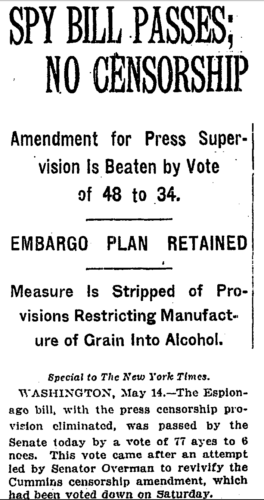 Not satisfied that censorship was excluded, Wilson pushed for an amendment to the Act that was passed by Congress (48-26 in the Senate and 293-1 in the House). The Alien and Sedition Act was enacted on May 16, 1918, just months before U.S. troops arrived on the Western Front in the First World War. Though it was called an act, it never stood alone as one, but became part of the Espionage Act.
Not satisfied that censorship was excluded, Wilson pushed for an amendment to the Act that was passed by Congress (48-26 in the Senate and 293-1 in the House). The Alien and Sedition Act was enacted on May 16, 1918, just months before U.S. troops arrived on the Western Front in the First World War. Though it was called an act, it never stood alone as one, but became part of the Espionage Act.
Wilson had the backing of influential congressmen and newspaper publishers who wanted to shut down certain speech. The Sedition Act curtailed speech especially of Americans who opposed U.S. participation in the war and particularly the draft. More than 4 million Americans fought and 110,000 died in the war. (The act may have influenced U.S. newspapers to suppress news of the 1918 flu pandemic in deference to the war effort.)
The Sedition Act’s two-paragraph amendment to the Espionage Act was specifically aimed at Americans who insulted the U.S. government, military or flag and tried to criticize the draft, military industry or sale of war bonds. It said:
“…whoever, when the United States is at war, shall willfully utter, print, write or publish any disloyal, profane, scurrilous, or abusive language about the form of government of the United States or the Constitution of the United States, or the military or naval forces of the United States, or the flag of the United States, or the uniform of the Army or Navy of the United States into contempt, scorn, contumely, or disrepute, or shall willfully utter, print, write, or publish any language intended to incite, provoke, or encourage resistance to the United States, or to promote the cause of its enemies, or shall willfully display the flag of any foreign enemy, or shall willfully by utterance, writing, printing, publication, or language spoken, urge, incite, or advocate any curtailment of production in this country of any thing or things, product or products, necessary or essential to the prosecution of the war in which the United States may be engaged, with intent by such curtailment to cripple or hinder the United States in the prosecution of war, and whoever shall willfully advocate, teach, defend, or suggest the doing of any of the acts or things in this section enumerated, and whoever shall by word or act support or favor the cause of any country with which the United States is at war or by word or act oppose the cause of the United States therein, shall be punished by a fine of not more than $10,000 or the imprisonment for not more than twenty years, or both…”
It also empowered the postmaster general to intercept and return mail to its sender stamped with the words “Mail to this address undeliverable under Espionage Act.”
This law distilled the essence of enforced loyalty of the population to the symbols and military power of the state. It demolished the idea that America is exceptional as it showed the U.S. enforcing the same state-worship as most nations in history.
Though he is not an American and the Sedition Act is no longer on the books, it is this disloyalty to the dictates of the American state that Assange is being punished for as his extradition hearing prosecutors failed to demonstrate his work caused harm. (Today’s sedition law relates to two or more people who conspire to overthrow the U.S. government.)
Espionage and Sedition Act Prosecutions
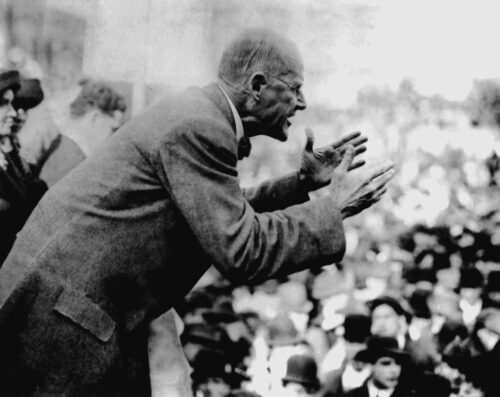
Debs at a 1918 rally, shortly before being arrested for sedition for opposing the draft. (Wikimedia Commons)
The act, with similar federal laws, was used to convict at least 877 people in 1919 and 1920, according to a report by the attorney general. In 1919, the Supreme Court heard several important free speech cases — including Debs v. United States and Abrams v. United States — involving the constitutionality of the law. In both cases, the Court upheld the convictions as well as the law.
The best-known Sedition Act prosecution was the socialist presidential candidate Eugene V. Debs. A month after the 1918 Sedition Act was passed was passed on May 16, 1918, Debs was sentenced to 10 years in prison for publicly opposing the military draft. In a June 1918 speech he had said: “If war is right let it be declared by the people. You who have your lives to lose, you certainly above all others have the right to decide the momentous issue of war or peace.”
While in jail Debs received one million votes for president in the 1920 election. Assange’s defiance of the U.S. government went well beyond Debs’ anti-war speech by uncovering war crimes and corruption.
For being seditious, Debs and Assange are the most prominent political prisoners in U.S. history.
The Schenck Case
Before the Sedition Act, Charles Schenck, the general secretary of the U.S. Socialist Party, was arrested in 1917, and convicted under the Espionage Act for mailing fliers to draft-age men opposing the First World War conscription.
He was charged with language from Section 3 of the Espionage Act that made it illegal to “make or convey false reports or false statements with intent to interfere with the operation or success of the military or naval forces of the United States” and to “cause or attempt to cause insubordination, disloyalty, mutiny, or refusal of duty in the military or naval forces … or … willfully obstruct the recruiting or enlistment service of the United States.”
Schenck’s appeal on First Amendment grounds went to the U.S. Supreme Court, which ruled in March 1919 that his conviction did not violate free speech.
It was a significant decision, rolled back somewhat in 1969 by the First Amendment case Brandenburg v. Ohio, in which the Supreme Court ruled the government could only punish inflammatory speech if it is “directed to inciting or producing imminent lawless action and is likely to incite or produce such action.” The Espionage Act indictment against Assange doesn’t allege that, other than a very weak and fraught U.S. claim Assange “intentionally” risked the lives of U.S. informants.
The ruling in Schenck’s case was a significant defeat for the First Amendment against the Espionage Act. But it did not deal with the possession and publication of classified material that Assange has been charged with. Since no journalist had ever been charged with this before, Assange’s appeal on First Amendment grounds, if it goes that far, would also be a first.
The Masses
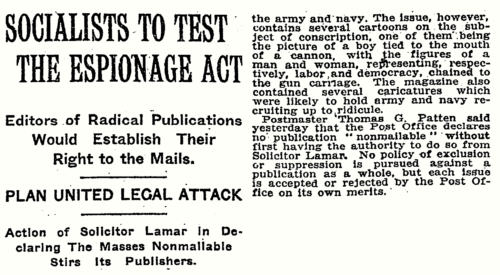 A magazine called The Masses was prosecuted in 1918 for interfering with the military draft. The magazine published some of the leading left-wing writers of the day, including Max Eastman, John Reed and Dorothy Day.
A magazine called The Masses was prosecuted in 1918 for interfering with the military draft. The magazine published some of the leading left-wing writers of the day, including Max Eastman, John Reed and Dorothy Day.
Distribution of The Masses was barred in the New York subway system, by United News Co. of Philadelphia, Magazine Distributing Co. of Boston, in university libraries, bookshops and by the Canadian postal system. Then the Associated Press sued the magazine in 1913 because it critiqued AP’s reporting of the Paint Creek-Cabin Creek strike of 1912 in West Virginia, a suit that was eventually dropped.
In 1917, The Masses was charged under the Espionage Act with “unlawfully and willfully” obstructing the recruiting and enlistment of U.S. soldiers to fight in World War I, which the magazine opposed. Louis Untermeyer, a writer for the magazine, said, “As the trial went on it was evident that the indictment was a legal subterfuge and that what was really on trial was the issue of a free press.”
The judge instructed the jury: “I do not have to remind you that every man has the right to have such economic, philosophic or religious opinions as seem to him best, whether they be socialist, anarchistic or atheistic.” The first trial ended in a mistrial when one juror was discovered to be a socialist and the other jurors demanded the prosecutors indict him too. The second trial also ended in a mistrial.
The Sedition Act was repealed by Congress in March 1921 and Debs’ sentence was commuted by President Warren Harding.
Prior Restraint in War
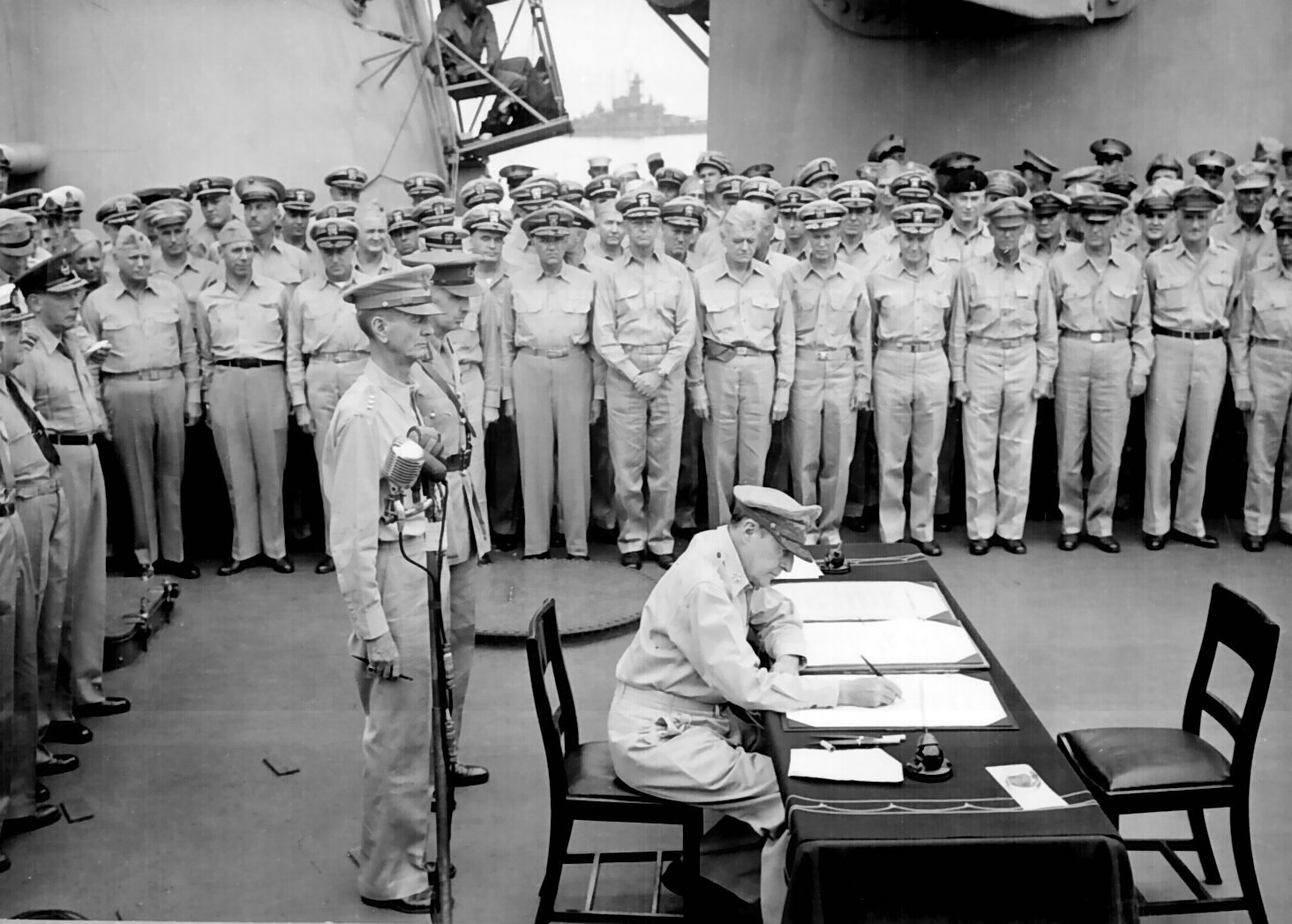
General Douglas MacArthur signs as supreme allied commander during formal surrender ceremonies on the USS MISSOURI in Tokyo Bay, Sept. 2, 1945 (US Navy)
With few exceptions, American newspapers voluntarily censored themselves in the Second World War before the government dictated it. In the Korean War, General Douglas MacArthur said he didn’t “desire to reestablish wartime censorship” and instead asked the press for self-censorship. He largely got it until the papers began reporting American battlefield losses.
On July 25, 1950, “the army ordered that reporters were not allowed to publish ‘unwarranted’ criticism of command decisions, and that the army would be ‘the sole judge and jury’ on what ‘unwarranted’ criticism entailed,” according to a Yale University study on military censorship.
After excellent on-the-ground reporting from Vietnam brought the war home to America and spurred popular anti-war protests, the military reacted by blaming the news media for its defeat. It then instituted, initially in the First Gulf War, serious control of the press by “embedding” reporters from private media companies, which accepted the arrangement, much as World War II newspapers censored themselves.
FDR Targets Newspaper
When The Chicago Tribune defied World War II censorship in 1942 by reporting that the U.S. Navy knew Japan’s strategy for the Battle of Midway — evidently by decoding Japanese communications — President Franklin D. Roosevelt attempted to use the Espionage Act to prosecute a reporter for the first time for publishing defense information. His Justice Department had a grand jury empaneled in Chicago, which, unlike in the Assange case, refused to return an indictment.
Three years later the FBI raided the offices of Amerasia, a pro-communist publication, which had obtained classified information, including up to “Top Secret,” and published articles based on it. It seemed a clear, technical violation of the Espionage Act for possessing and communicating state secrets, but a grand jury again refused to indict under the Act because the publication did not pass secrets to a foreign power, as Assange has not. 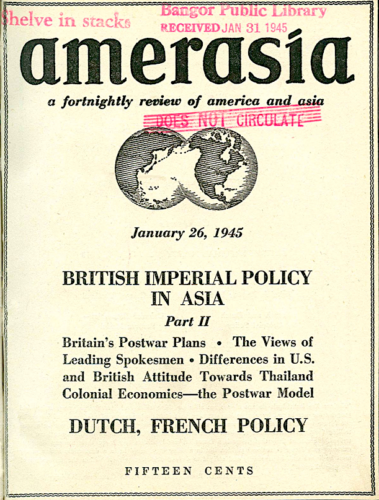
Right-wingers in Congress were incensed and, helping to launch the McCarthyist era, mobilized to pass in 1950 amendments to the Espionage Act, including section 798 and sub-sections 793(e) and (g), which has directly affected Assange.
While the U.S. prosecution in his extradition case at first argued that he was not a journalist and its case was not about journalism, it later changed tack — after defense witnesses strongly indicated that it was — and argued instead that Assange had violated sub-section 793(e) for possession and publication of defense information.
In a sense it can be said that Assange is at least an indirect victim of McCarthyism.
McCarran Internal Security Act
The McCarthyist scare was just underway in 1950 when an amendment to the Espionage Act added Section 793 (e) and (g) and Section 798. The Act that contained the amendments was named after its sponsor, Democratic Sen. Pat McCarran of Nevada.
While the act was being debated in 1949, West Virginia Sen. Harley Kilgore wrote to McCarran, warning that the amendment “might make practically every newspaper in the United States and all the publishers, editors, and reporters into criminals without their doing any wrongful act.”
The U.S. attorney general wrote at the time, falsely it turned out, “that nobody other than a spy, saboteur, or other person who would weaken the internal security of the Nation need have any fear of prosecution under either existing law or the provisions of this bill.”
The language in the British and U.S. espionage laws that have been considered is exceedingly broad, giving governments on both sides of the Atlantic wide berth to bring prosecutions on anyone. The 1950 amendments to the Espionage Act made that language broader still.
The most significant 1950 change to the Espionage Act was to remove intent and make mere retention of defense information illegal. According to Harold Edgar and Ben Schmidt Jr. in the May 1973 edition of Columbia Law Review:
“The basic provisions of sections 793 and 794 have been changed importantly only once since 1917. As a little-noted aspect of the massive Internal Security Act of 1950, section 793 was extended by the addition of subsection (e). This provision departed from the established pattern of the 1917 Act by imposing a prohibition applicable to everyone, not conditioned on any special intent requirement, on communication of information relating to the national defense to persons not entitled to receive it. Mere retention of defense information was also made a crime.”
Subsection (e) removed the requirement that anyone who had unauthorized possession of state secrets return it to proper authorities on their “demand.” It now has to be returned without any such demands. So a journalist like Assange who received defense information without authority, did not immediately return it, and communicated it could more easily be prosecuted with the government not having to prove any intent on his part.
Edgar and Schmidt add:
“The sweep of these provisions seems incredible when measured against the congressional antipathy, manifested both in the 1917 debates and in subsequent confrontations with the problem of secrecy, to broad prohibitions that would hinder public speech on defense matters. No special culpability requirement explicitly restricts their reach. Barring the possible effect of limiting constructions, any ‘communicating’ of defense material or information to anyone not authorized to hear about it is a serious criminal offense. Even retaining possession of such material is unlawful for those who lack special authorization.
If these statutes mean what they seem to say and are constitutional, public speech in this country since World War II has been rife with criminality. The source who leaks defense information to the press commits an offense; the reporter who holds onto defense material commits an offense; and the retired official who uses defense material in his memoirs commits an offense.”
The McCarran Act’s adoption of 793 (g) added conspiracy to the Espionage Act. It says: “If two or more persons conspire to violate any of the foregoing provisions of this section, and one or more of such persons do any act to effect the object of the conspiracy, each of the parties to such conspiracy shall be subject to the punishment provided for the offense which is the object of such conspiracy.” Assange was also charged under this section for allegedly conspiring with his source, Chelsea Manning, in what is otherwise seen as a routine relationship between a reporter and a source.
The Internal Security Act also went as far as creating a Subversive Activities Control Board to investigate someone merely suspected of engaging in subversive activities. It created an emergency detention statute giving the president authority to arrest “each person as to whom there is a reasonable ground to believe that such person probably will engage in, or probably will conspire with others to engage in, acts of espionage or sabotage.” (The Board was defunded in 1974.)
President Harry Truman vetoed the McCarran Act. Without addressing the changes to the Espionage Act, Truman said McCarran threatened “the greatest danger to freedom of speech, press, and assembly since the Alien and Sedition Laws of 1798;” made a “mockery of the Bill of Rights” and was a “long step toward totalitarianism.”
But a McCarthyist Congress overrode Truman’s veto. Had it not, it may have been harder to indict Assange.
The Act’s Territorial Reach — The Amendment That Imperils Assange
If the original 1917 Espionage Act were still in force, the U.S. government could not have charged Assange under it because the 1917 language restricted the territory where it could be applied:
“The provisions of this title shall extend to all Territories, possessions, and places subject to the jurisdiction of the United States whether or not contiguous thereto, and offenses under this title when committed upon the high seas or elsewhere within the admiralty and maritime jurisdiction of the United States …”
WikiLeaks publishing operations have never occurred in any of these places. But in 1961 Virginia Congressman Richard Poff, after several tries, was able to get the Senate t0 repeal Section 791 that restricted the Act to “within the jurisdiction of the United States, on the high seas, and within the United States.”
Poff was motivated by the case of Irvin Chambers Scarbeck, a State Department official who was convicted of passing classified information to the Polish government during the first Cold War.
Polish security agents had burst into a bedroom to photograph Scarbeck in bed with a woman who was not his wife. Showing him the photos, the Polish agents blackmailed Scarbeck: turn over classified documents from the U.S. embassy or the photos would be published and his life ruined. Adultery was seen differently in that era.
Scarbeck then removed the documents from the embassy, which is U.S. territory covered by the Espionage Act, and turned them over to the agents on Polish territory, which at the time was not.
Scarbeck was found out and fired, but could not be prosecuted because of the territorial limitations of the Act. That set Poff off on a one-man campaign to extend the reach of the Espionage Act to the entire globe.
The Espionage Act thus became global, ensnaring anyone anywhere in the world into the web of U.S. jurisdiction.
“Justice Hugo Black: ‘The press was to serve the governed, not the governors. The Government’s power to censor the press was abolished so that the press would remain forever free to censure the Government.'”
Pentagon Papers Case
The 1971 decision of the Supreme Court against the Nixon administration’s “prior restraint” injunction of The New York Times, allowing the press to continue publishing the Pentagon Papers, is well known.
Less known is that the Nixon Justice Department empaneled a grand jury in Boston with the intention of indicting reporters from the Times, The Washington Post and The Boston Globe under the Espionage Act for publishing articles based on the classified Papers.
It was the second attempt, after FDR, by an administration to charge reporters with espionage for possessing and publishing state secrets.
Nixon was able to set up the grand jury because the Supreme Court made clear in the Times case that though the government could not stop a newspaper from publishing classified matter in advance, it could pursue prosecutions after publication for violating the Espionage Act.
This is highly relevant to the Assange case as his prosecutor, James Lewis QC, brought it up during the September extradition hearing in London. At first Lewis stressed to the court the U.S. view that Assange was not a journalist. After a succession of defense experts dismantled that view, Lewis essentially conceded that Assange was a journalist, but that the Espionage Act gave the government the authority to prosecute journalists after publishing defense information.
Justice Byron White in the Papers case said newspapers were “not immune from criminal action” for publishing classified information. “Failure by the Gov. to justify prior restraints does not measure its constitutional entitlement to a conviction for criminal publication. That the Gov. mistakenly chose to proceed by injunction does not mean that it could not successfully proceed in another way.”
The question of prior restraint versus no restraint after publication was debated at the founding of the United States. James Madison believed it a “mockery to say that no law should be passed preventing publications from being made, but that laws might be passed for punishing them in case they should be made.” Had Madison’s view prevailed, the Espionage Act could not have been used against a journalist like Assange post publication.
But instead the Espionage Act adopted the logic of Adam’s pernicious 1798 Sedition Act, which was based on a 1769 commentary by William Blackstone, an English jurist, judge and Tory politician, who wrote, “liberty of the press … consists in laying no previous restraints upon publications and not in freedom from censure for criminal matter when published.”
In the Papers’ case, the Boston grand jury was disbanded only after prosecutorial misconduct in the trial of the Times’ source, Daniel Ellsberg, led to his case being dismissed. Ellsberg was the first newspaper source to be prosecuted under the Espionage Act. When the Times’ reporters under grand jury scrutiny, Neil Sheehan and Hedrick Smith, learned that Ellsberg’s phone had been tapped, they asked the government whether they had been tapped as well in their conversations with their source. Shortly after that, their case was dropped, Ellsberg told me in an interview.
The Nixon Justice Department was in a position to bring Espionage Act charges against then U.S. Sen. Mike Gravel of Alaska. After being turned down by several senators, including Sen. George McGovern who was planning a run for president, Ellsberg found Gravel willing to read the Papers out loud into the congressional record during a Senate subcommittee meeting.
On June 29, 1971, the night before the Supreme Court decision, Gravel legally revealed the classified Pentagon Papers on Capitol Hill because of the U.S. Constitution’s Speech or Debate clause, which says that, “for any Speech or Debate in either House,” members of Congress “shall not be questioned in any other Place.” That means any senator or representative can in effect declassify any material without penalty if done during a legislative act.
But when Gravel arranged with Beacon Press in Boston to publish the Papers as a five-volume book, he lost this legal protection. Gravel told me for the book we co-authored, A Political Odyssey, that he did this because after the Supreme Court judgement the newspapers nonetheless stopped writing stories based on the Papers. Gravel feared Nixon would indict him. While the government could not stop Beacon from publishing, it could prosecute afterward. Nixon left Gravel alone, however, and instead went after the publisher, the way Trump went after Assange.
Gobin Stair, executive director of Beacon Press, told a conference in Boston in October 2002 that he decided to publish the Papers after Nixon picked up the phone to threaten him: “I recognized his voice, and he said, ‘Gobin, we have been investigating you around Boston. I hear you are going to do that set of papers by that guy Gravel.’ It was obvious he was going to ask me not to publish it. The result was that as the guy in charge at Beacon, I was in real trouble. To be told by Nixon not to [publish this book], convinced me that it was a book to do.”
On Sept. 17, 1971, two Pentagon goons replete with fedoras, trench coats, and cigarettes showed up at Beacon’s offices on the hill overlooking Boston Common. They tried to intimidate Stair. They demanded the Papers for military analysts to study. They checked the photocopy machine to see if Ellsberg had used it. But the tough-guy act failed. Stair stalled by agreeing to a follow-up meeting. Then the Pentagon suddenly dropped the matter.
Twelve days before Beacon Press’ publication date the Pentagon published its own paperback edition of the Pentagon Papers. So much for harming national security. It was Nixonian vindictiveness to take the wind out of Beacon’s sails and sales. What he considered stolen property he put on sale at $50 for a 12-volume set.
Secrecy and the Press’ Role
Supreme Court justices in the Pentagon Papers case underscored the role the press plays to reign in authoritarian leaders who over-classify information to protect their interests in the name of “national security.” In retrospect, the justices’ opinions amount to a defense from the highest levels of U.S. government of the work of Assange and WikiLeaks.
Justice Hugo Black challenged the “national security” mantra as a subterfuge to justify secrecy and repression. In his Pentagon Papers opinion, he wrote: “The word ‘security’ is a broad, vague generality whose contours should not be invoked to abrogate the fundamental law embodied in the First Amendment. The guarding of military and diplomatic secrets at the expense of informed representative government provides no real security for our Republic.”
He went on:
“In the First Amendment the Founding Fathers gave the free press the protection it must have to fulfill its essential role in our democracy. The press was to serve the governed, not the governors. The Government’s power to censor the press was abolished so that the press would remain forever free to censure the Government.
The press was protected so that it could bare the secrets of government and inform the people. Only a free and unrestrained press can effectively expose deception in government. And paramount among the responsibilities of a free press is the duty to prevent any part of the Government from deceiving the people and sending them off to distant lands to die of foreign fevers and foreign shot and shell.
In my view, far from deserving condemnation for their courageous reporting, The New York Times, The Washington Post and other newspapers should be commended for serving the purpose that the Founding Fathers saw so clearly. In revealing the workings of government that led to the Vietnam war, the newspapers nobly did precisely that which the founders hoped and trusted they would do.” [Emphasis added.]
Justice Potter Stewart wrote in his Pentagon Papers opinion that:
“In the absence of the governmental checks and balances present in other areas of our national life, the only effective restraint upon executive policy and power in the areas of national defense and international affairs may lie in an enlightened citizenry— in an informed and critical public opinion which alone can here protect the values of democratic government. For this reason, it is perhaps here that a press that is alert, aware, and free most vitally serves the basic purpose of the First Amendment. For without an informed and free press there cannot be an enlightened people.”
Justice William Douglas went even further, questioning whether the Espionage Act related to the press at all, and whether journalists and publishers can be prosecuted after publication, as Assange has been. Douglas wrote:
“There is … no statute barring the publication by the press of the material which The Times and Post seek to use. 18 U.S.C. Section 793 (e) provides that ‘whoever having unauthorized possession of, access to, or control over any document, writing, … or information relating to the national defense which information the possessor has reason to believe could be used to the injury of the United States or to the advantage of any foreign nation, wilfully communicates … the same to any person not entitled to receive it … shall be fined not more than $10, 000 or imprisoned not more than 10 years or both.”
The Government suggests that the word, ‘communicates’ is broad enough to encompass publication.
There are eight sections in the chapter on espionage and censorship, Sections 792-799. In three of those eight, ‘publish’ is specifically mentioned: Section 794 (b) provides, ‘Whoever in time of war, with the intent that the same shall be communicated to the enemy, collects records, publishes, or communicates … [the disposition of armed forces].’
Section 797 prohibits ‘reproduces, publishes, sells, or gives away’ photos of defense installations.
Prior Restraint in Britain
The Pentagon Papers case revealed one difference between U.S. and British law in regard to prior restraint. While the Supreme Court would not allow publication of the Papers to be enjoined, the absence of a First Amendment in Britain has freed the government to halt publication on occasion. A most celebrated case was that of the book Spycatcher, a memoir by Peter Wright, a former assistant director of MI5. The British government got an injunction in 1985 to ban its release.
The Margaret Thatcher government then went to court in Australia to ban the book there, but lost the case, defended by future Prime Minister Malcolm Turnbull. The book was released in Australia and in the U.S. on July 31, 1987. English newspapers tried to publish excerpts but were served gag orders and later were charged with contempt of court. The ban on English papers was then partially lifted by three High Court judges a week before U.S. and Australian publication, but three weeks later senior Law Lords reinstated the ban on appeal. Lord Ackner for the 3-2 majority said if the ban were not reimposed, the Attorney General would be “prematurely and permanently” denied court protection. He said:
“It would be established, without trial and for all time, that by the simple expedient of going abroad, and arranging publication in the press in a country such as the United States — where there is no remedy by way of injunction — the courts in this country would become incapable of exercising their well-established jurisdiction. Your Lordships would have established a charter for traitors to publish on the most massive scale in England whatever they had managed to publish abroad. …
If the publication of this book in America is to have, for all practical purposes, the effect of nullifying the jurisdiction of the English courts to enforce compliance with the duty of confidence, . . . then, . . . the English law would have surrendered to the American Constitution. There the courts, by virtue of the First Amendment, are, I understand, powerless to control the press. Fortunately, the press in this country is, as yet, not above the law.”
Labour MP Tony Benn defied the ban by reading aloud from the book in Hyde Park’s Speakers Corner. British newspapers reacted with disdain. The Daily Mail pictured the three Law Lords upside down on its front cover with the headline: “YOU FOOLS.” The Economist ran a blank page with the explanation that in only one country were excerpts banned. “For our 420,000 readers there, this page is blank — and the law is an ass.”
In October 1988 the Law Lords reversed themselves, allowing publication because, as the BBC reported, “any damage to national security has already been done by its publication abroad.”
The British government’s actions were not based on statutory authorization for prior restraint but rather on common law. Because there is no formal censorship clause in the Official Secrets Act of a kind that President Wilson had sought, instances of British prior restraint cannot be laid on the Act, but rather on no First Amendment-type legislation and Britain’s lack of adherence to Article 10 of the 1950 European Convention on Human Rights, which guarantees free speech.
The 1989 Official Secrets Act
The most significant change in the Official Secrets Act of 1989 is that it largely brought it into line with the McCarran-amended Espionage Act: intent was removed, thereby eliminating the public interest defense. A 1988 government White Paper considering changes to the OSA, stated:
“Suggestions have been made that the law should provide a general defence that disclosure was in the public interest. The object would be to enable the courts to consider the benefit of the unauthorised disclosure of particular information, and the motives of the person disclosing it, as well as the harm which it was likely to cause. It is suggested, in particular, that such a defence is necessary in order to enable suggestions of misconduct or malpractice to be properly investigated or brought to public attention.
The Government recognises that some people who make unauthorised disclosures do so for what they themselves see as altruistic reasons and without desire for personal gain. But that is equally true of some people who commit other criminal offences. The general principle which the law follows is that the criminality of what people do ought not to depend on their ultimate motives – though these may be a factor to be taken into account in sentencing – but on the nature and degree of the harm which their acts may cause. …
It cannot be acceptable that a person can lawfully disclose information which he knows may, for example, lead to loss of life simply because he conceives that he has a general reason of a public character for doing so. So far as the criminal law relating to the protection of official information is concerned, therefore, the Government is of the mind that there should be no general public interest defence and that any argument as to the effect of disclosure on the public interest should take place within the context of the proposed damage tests where applicable.”
In other words, strict liability would be imposed: either one broke the law, or one didn’t, no matter the reason.
The changes were spurred by the fallout from a case involving the 1982 British sinking of the Argentine warship General Belgrano during the Falklands/Malvinas war, which killed 360 people. Clive Ponting, a senior civil servant at the Ministry of Defence at the time, leaked a document to a Labour MP exposing the government lie that it had acted in self-defense.
In fact the document showed the Belgrano was sailing out of a British-declared, 200-mile exclusion zone around the Falklands. Ponting was put on trial in 1985 for violating the Official Secrets Act and mounted a public interest defense.
Though the judge indicated to the jury that it should find Ponting guilty, infamously saying “The ‘public interest’ is what the government of the day says it is,” the jury acquitted Ponting on the grounds that what he had done was indeed in the public interest.
It was a great embarrassment for Prime Minister Margaret Thatcher, who had staked her re-election on the war. So her government set about amending the Act to remove the public interest defense altogether. It also explicitly made it a crime for anyone, including a journalist, to commit the offenses of possession and disseminating classified information.
The implications for Assange of these changes are stark. In her judgement in Assange’s extradition hearing, Baraitser upheld the Espionage Act charges against him because she said they met the criteria of his alleged activities being a crime in both the U.S. and Britain — a requirement in an extradition case. Before the 1989 removal of the public interest defense, which does not exist in the Espionage Act, that would have less likely been the case.
Being unable to explain that the intent of one’s actions was in the public interest is fatal to a case like Assange’s. Ellsberg has many times told the story that when he was on the witness stand in his Espionage Act case the judge prevented him from explaining why he had leaked the Pentagon Papers.
The 1989 Act repealed Section 2 of the 1911 act, which criminalized the mere character of a defendant and took the burden of proof from the prosecution. It also added a Section 5 that explicitly makes members of the public, which would include journalists, liable to prosecution.
According to a House of Commons study “if a member of the public (or any person who is not a Crown Servant or government contractor) has in their possession official information in any of the six categories, and this information has:
• been disclosed to them by a Crown Servant without lawful authority; or
• was entrusted to them by a Crown Servant in confidence, then it is an offence to disclose this information without lawful authority.”
Among the six categories of unauthorized disclosure include “• Security and intelligence • Defence • International Relations • Information which might lead to the commission of crime and • Foreign confidences.” This clearly jeopardizes any reporter who is given “official information” by a whistleblowing source.
There may be worse to come. Proposed changes to the 1989 Act by the Boris Johnson government, which would give intelligence agencies “the tools they need to disrupt hostile state activity,” have alarmed journalists even further. A National Union of Journalists spokesman, referring to the proposals by the Law Commission in 2017 to make gathering secret information a crime, told The Guardian: “The union expressed opposition at the time because the proposals included making it easier to prosecute journalists and increased the likelihood of conviction.”
Obama’s ‘NYT Problem’
After the Pentagon Papers case, the Gerald Ford and Ronald Reagan administrations threatened, but did not follow through, with Espionage Act indictments against the press. The Ford administration in 1975 discussed indicting journalist Seymour Hersh after he reported in The New York Times that U.S. submarines were spying on Soviet communications. In 1981 the Reagan Justice Department threatened but backed down on indicting author James Bamford for his groundbreaking book on the National Security Agency, The Puzzle Palace.
A reason the Espionage Act was not used against journalists until Assange, even though it could have been, is because of the Act’s inherent contradiction with the First Amendment. The Barack Obama administration aggressively used the Act against press sources, indicting more than any administration before.
When WikiLeaks published the Iraq and Afghanistan war diaries and the State Department cables in 2010, an incensed Obama Justice Department empaneled a grand jury with the intention of indicting Assange under the Espionage Act.
Then Vice President Joe Biden said if Assange conspired to get the classified material then his case was closer to the actions of a “high-tech terrorist” than to the Pentagon Papers.
Though prosecutors tried to construct a case that Assange was complicit with his source Chelsea Manning in illegally obtaining defense material, they ultimately concluded that Assange was working as a journalist and his prosecution was complicated by the First Amendment.
As The Washington Post put it in 2013 when it explained the Obama DOJ’s decision not to prosecute Assange:
“Justice officials said they looked hard at Assange but realized that they have what they described as a ‘New York Times problem.’ If the Justice Department indicted Assange, it would also have to prosecute the New York Times and other news organizations and writers who published classified material, including The Washington Post and Britain’s Guardian newspaper.”
In fact, the documents that Assange has been indicted for releasing on Afghanistan, Iraq and Guantanamo were the exact ones reported on by The New York Times, The Guardian and WikiLeaks’ other media partners, but only Assange has been prosecuted.
The Political and Class Nature of These Acts
While the overt intentions of legislators in Britain and the U.S. in enacting these laws may have been to combat foreign espionage, the broadness and complexity of the language left open its use, intentionally or not, against the press and the interests of the public. Instead, these Acts protect the interests of a class of people who have accrued vast power and are responding to the crisis of their rule with increasing aggression against anyone who threatens it.
Two U.S. presidents came close to prosecuting journalists and a third has indicted Assange for publishing defense information. Wilson intended the Espionage Act to censor the press. Though Congress defeated that effort it left an Act that has been used after publication to punish the press on the grounds of “national security” defined by the government of the day.
The British legal scholar David Glyndwr Tudor Williams warned back in 1965:
“It is surely desirable that the operation of the Official Secrets Acts should be severely confined. They should not be wielded as an all-purpose weapon, whatever the literal wording of their provisions. They should not be invoked unnecessarily – where other appropriate laws are available – or for trivial considerations. Their only admissible purpose in a democracy should be to restrain and punish espionage, gross breaches of trust and gross carelessness in respect of State secrets. They should not be used to intimidate the Press and to encourage a timidity in the handling of official information which in the end deprives an administration of the scrutiny and criticism necessary for efficiency and responsibility. If they are used too readily to stifle exposures of governmental inefficiency and corruption they could become as oppressive as the law of sedition once was.”
But indeed that is how they have now been used. And for a political purpose: to protect the interest of people in power.
In a 1990 academic paper, Australian scholar Barbara Hocking quoted journalist Tony Bunyan in his 1977 book The Political Police in Britain:
“In an analysis of the political uses of the criminal law in the United Kingdom, Bunyan turns this theoretical myth around: the fundamental purpose of the criminal law is the maintenance of a political order acceptable to the British ruling class; this was the primary purpose of the secrets legislation: ‘The British state has available to it the whole of criminal law for use against political opposition: the laws used against political activists embrace those normally used against the criminal and those for maintaining public order.'”
A Shattered Notion
Both British and U.S. espionage legislation throughout their histories have been as much political as legal instruments, allowing punishment not only for foreign spies, but for government officials who leak embarrassing information and for journalists who publish it.
Until now a difference between the Espionage and Official Secrets Acts has been the First Amendment. Without one, Britain has been more easily able to prosecute journalists. That led to the notion that the U.S. is better off because it does not have an “Official Secrets Act.” But the indictment of the journalist Assange, despite the First Amendment, has shattered that notion, giving the U.S. in effect an Official Secrets Act of its own.
At the time of the Pentagon Papers case, former U.S. Secretary of State Dean Acheson called for a “severe official secrets act” to go after journalists, not acknowledging that the U.S. already had one in the Espionage Act, which has now been proven with the indictment of Assange.
The political and class nature of these British and U.S. laws that go beyond classic foreign espionage to endanger journalists has never been clearer than in the Assange case, a man clearly seen as a class enemy for exposing rulers’ crimes and corruption.
Assange in the Dock

Joseph Farrell, (second from left), Kristinn Hrafnsson, Craig Murray and Stella Moris during break outside Old Bailey, Sept. 24, 2020. (Mohamed Elmaazi)
After three previous presidents came close to prosecuting journalists for possessing and publishing defense information — FDR in 1942, Nixon in 1971 and Obama in 2011 — the Trump administration unveiled an Espionage Act indictment shortly after Assange’s arrest in April 2019. Trump’s secretary of state tried to justify it by saying the U.S. had universal jurisdiction to prosecute but the First Amendment wouldn’t apply to Assange.
On the first day of Assange’s extradition hearing, prosecutor James Lewis QC directly addressed the press box. He said the prosecution was not about the press, because Assange was not a journalist. This was a tacit acknowledgement that the Espionage Act charges are in conflict with the First Amendment.
After numerous defense witnesses testified that Assange had engaged in journalistic activity (as the Espionage Act indictment against him itself describes), the U.S. changed its approach. The prosecution essentially admitted that Assange was indeed acting as a journalist, but that 793 (e) of the Espionage Act made no exceptions for journalists: Assange had unauthorized possession of defense information and had disseminated it to unauthorized persons. (There is a bill in Congress that would amend the Espionage Act to make such an exception for the press.)
Assange’s judge, Vanessa Baraitser, ultimately denied the U.S. extradition request on Jan. 4, on health grounds. But her 134-page judgement agreed with the U.S. on every other point that criminalizes journalism.
If the U.S. wins the appeal it filed on Feb. 13 in the London High Court it can try Assange in the U.S. on the Espionage Act charges that went unchallenged by Baraitser.
Baraitser’s decision underscored the close alignment of the Espionage and Official Secrets Acts. Since in an extradition case an act must be a crime in both countries, what Assange is accused of must be prohibited under both Acts. In her judgement, Baraitser pointed out how Assange would be just as liable under the Official Secrets Act:
“Section 5 of the OSA 1989 imposes criminal liability on a third party who comes into possession of information which has been disclosed to them by a Crown servant without lawful authority and who further discloses it in the circumstances prescribed by section 5. It applies to any individual, including a journalist, who is not a Crown servant, a contractor or a notified person, and it applies when protected information is published which caused damage to the work of the security and intelligence services.”
The damage Assange has done to these services is to their reputations, which is why they have come down so hard on him. The government has been unable to prove harm to any U.S. informants or service members as a result of any WikiLeaks publication. This became clear during Assange’s extradition hearing.
Assange’s treatment is not unusual, seen in the context of the long U.S. history of repression of a free press despite the First Amendment. Part of that repression has been the 1917 Espionage Act and its amendments, which helped set the stage for the Trump administration to trigger the first indictment of a journalist on an espionage charge.
Should Assange be extradited and face those charges in U.S. federal court it would fulfill the lust of reactionaries from the founding of the country to punish journalists for uncovering their secret crimes and corruption.
Joe Lauria is editor-in-chief of Consortium News and a former UN correspondent for The Wall Street Journal, Boston Globe, and numerous other newspapers. He was an investigative reporter for the Sunday Times of London and began his professional career as a stringer for The New York Times. He can be reached at joelauria@consortiumnews.com and followed on Twitter @unjoe
This is Part 2 of a two part series. You can read Part 1 here: “ASSANGE EXTRADITION: Espionage is the Charge, But He’s Really Accused of Sedition.”
Support CN’s
Winter Fund Drive!
Donate securely with PayPal
Or securely by credit card or check by clicking the red button:


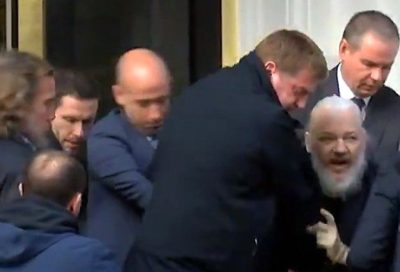
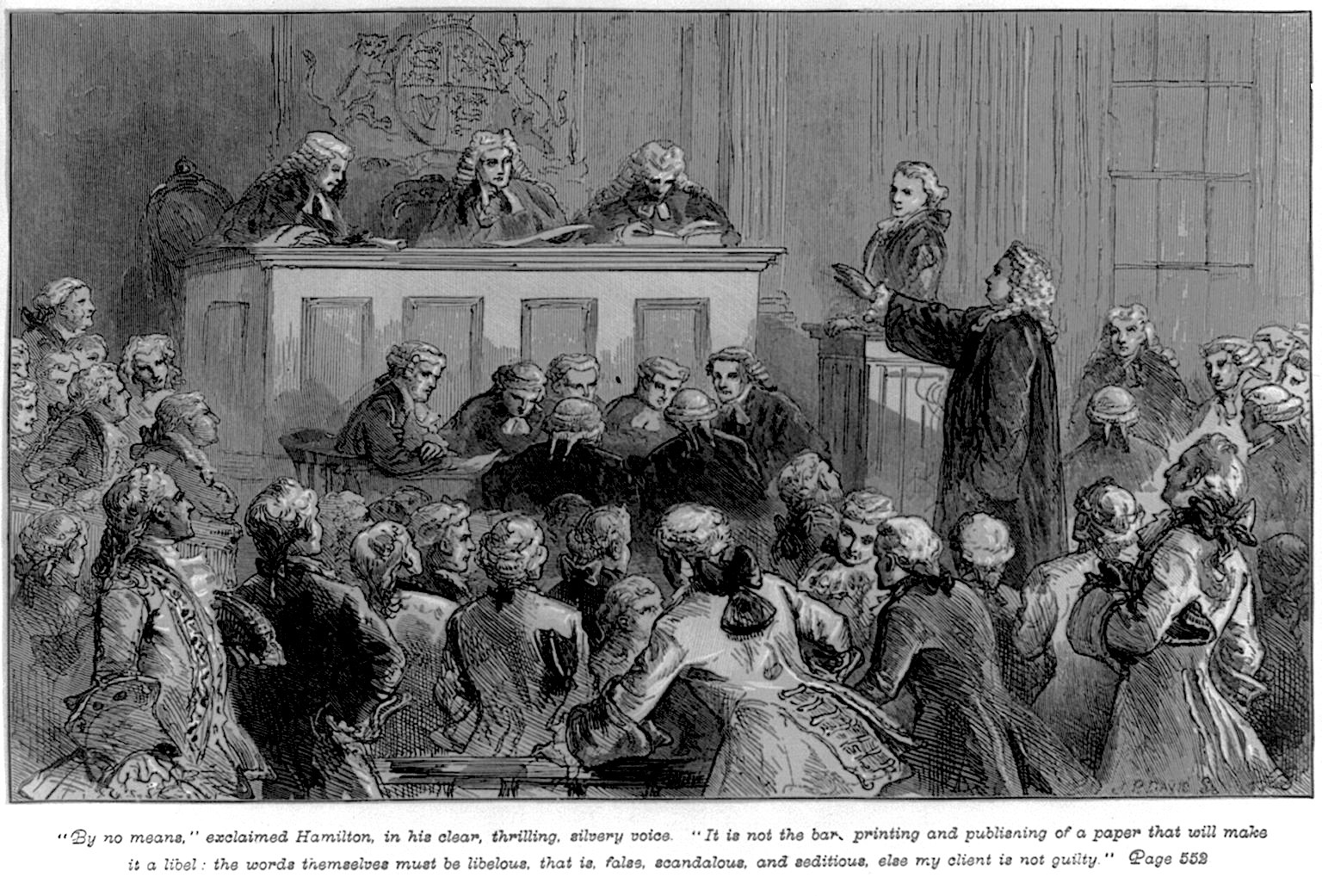
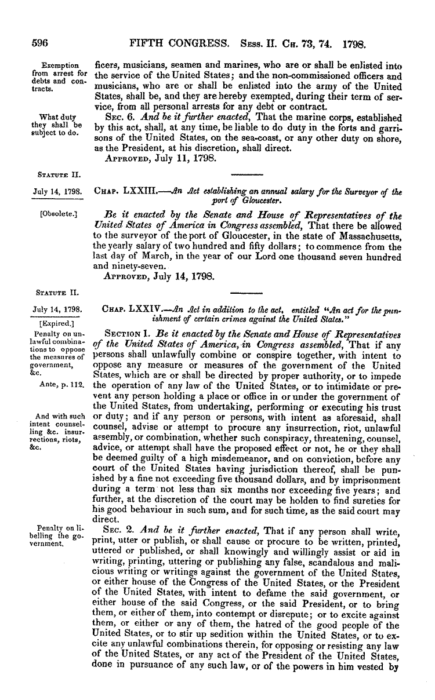
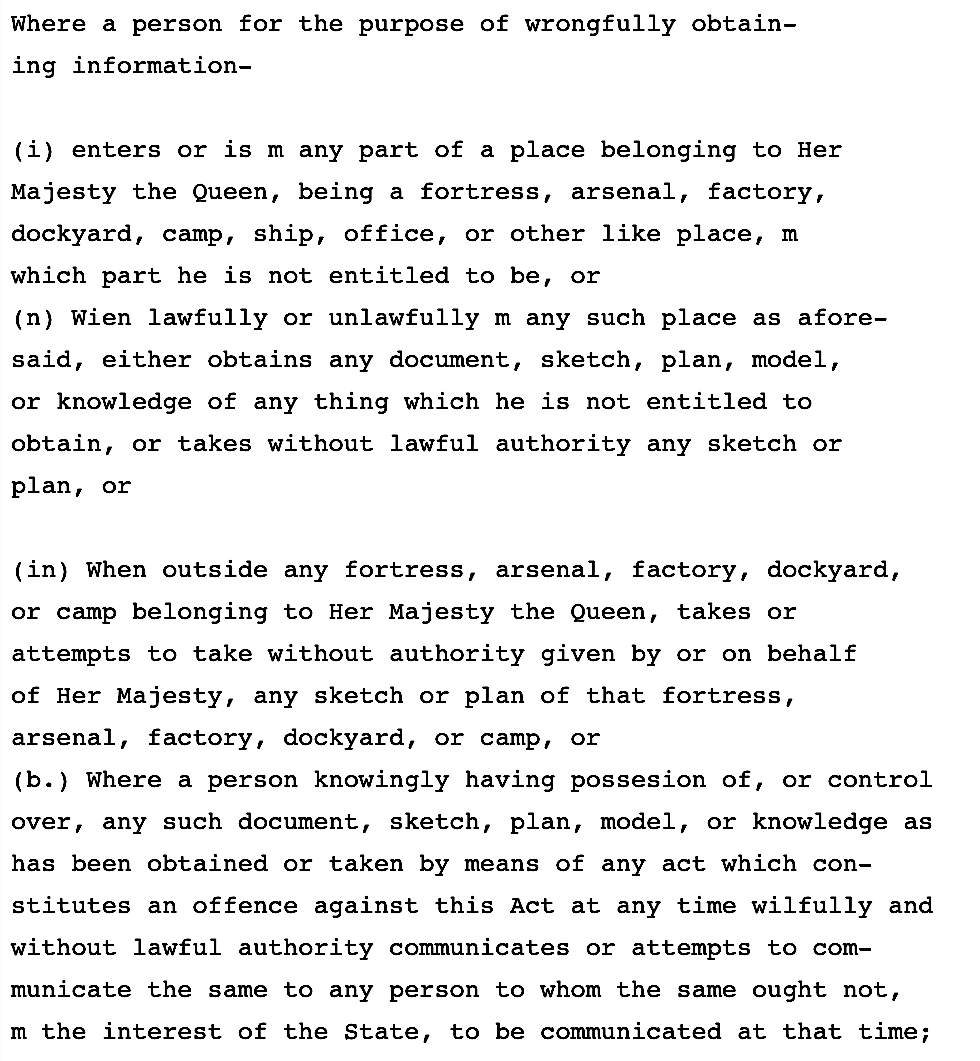
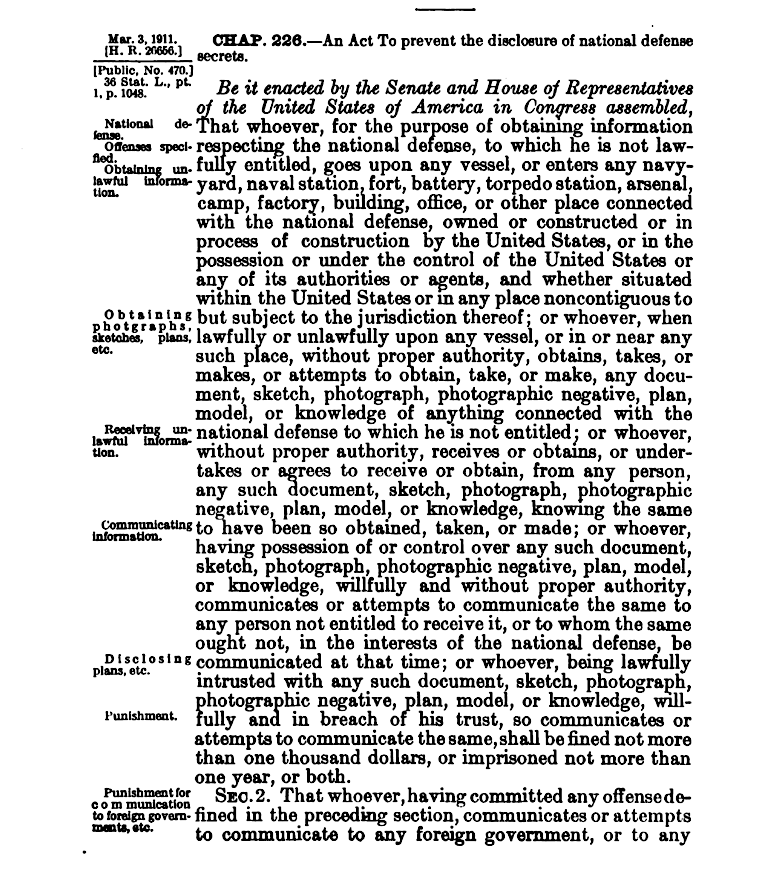
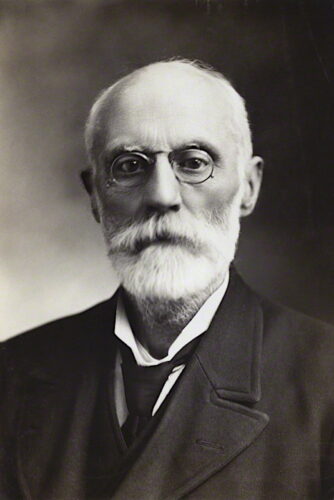
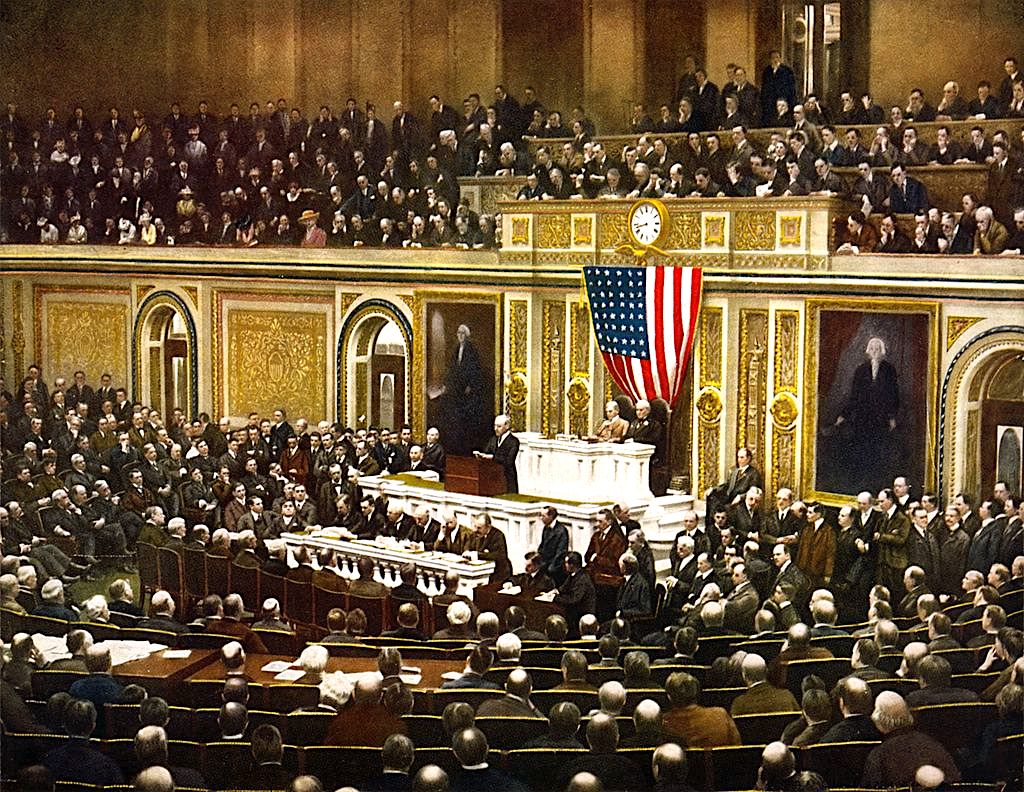
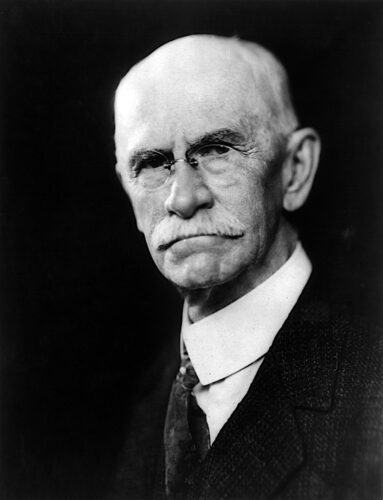
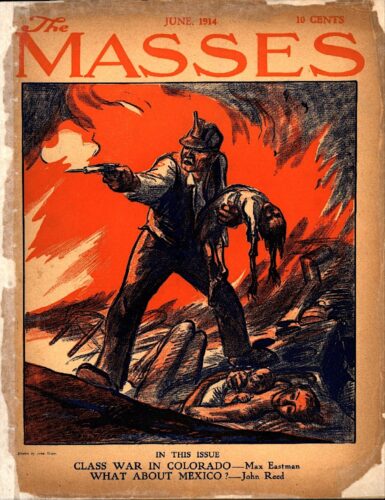

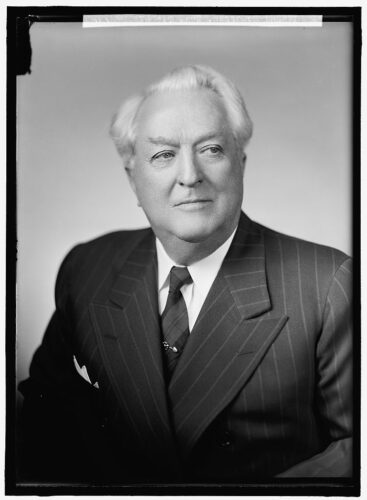
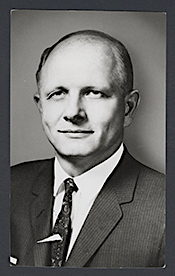

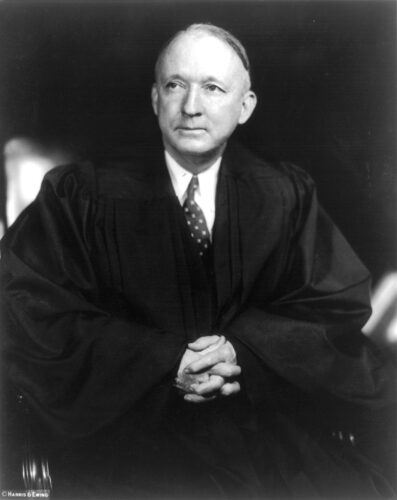

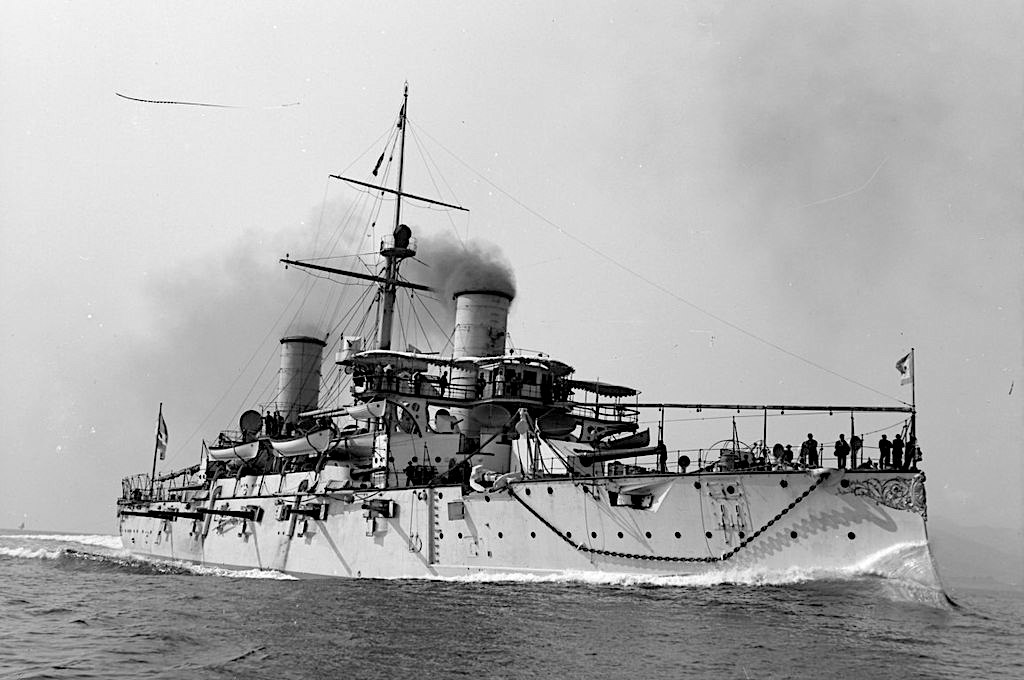


never before have I read such a top down biased bunch of bull shit. Its based concept of the future of humanity on this earth is a business plan not a report. It left out the biggest concern of all <= that is the gifts made by human right infringing nation states to feed financial and economic strength into their feudal partners (corporations, cartels, NGOs and the like). This report stinks of monopoly powered corporatism . its so bad I would classify it as slum propaganda..
Folks at home just enjoying the day for a change.
~
“folksathome” could you elaborate. Your post makes no sense.
~
I mean it makes more sense than the 400+ paragraphs from the dishonorable magistrate whose family is out of South Africa, and whose so-flawed decision is a link on this article, for downloading purposes if you are so inclined, but still, it makes no sense. Your post seems misplaced.
~
I ain’t got an ounce of seditious blood in my veins, but I am pissed off about my country.
What a brilliant article. Thank you so much for publishing it. Essential text book information to allow one to follow Julian’s further trials.
I earnestly hope that his US judges rule during any trial that the case against Julian is unconstitutional or if the charges go to a jury decision that it provides a not guilty decision based on the First Amendment.
What a great shame that the UK doesn’t have the equivalent to the US First Amendment.
Good to see that our Malcolm Turnbull (recent PM) successfully defended the right of Peter Wright’s book, The Spy Catcher to be published in Australia
After all the lies that came from Trump—-to take an actual journalist, like Julian Assange, and brand him as a criminal is ridiculous!
And Joe Biden, what a disappointment you are—-when truth telling about any part of government is a crime——-then the concept of a free Press is dead. I am still waiting for anyone in this country to address the future of America. When America —-are you going to work with that Preamble ; “We the People of the United States, in order to form a more perfect union….” We the People are still waiting for that to be fulfilled.
Assange Judas: Strong Satire: Look here, the motives of those who support the permanent incarceration of Assange are Christians and moralists whose main concern is delivering hope for the people who want to live in a secure and happy environment in the US , UK Europe and Australia.
hXXps://youtu.be/Q6SYFftugOI
Julian Assange is without any doubt a genuine, sincere, effective peacemaker intent on finally ending horrific, tragic, unnecessary war on Earth, – for all time..
His persecutors are genuine war criminals intent on guaranteeing their continued capacity to brutally harm any innocent man, woman or child who – through no fault of their own – gets in the way of further accumulated power and riches..
One need not acquire a Ph.D. in Law or Philosophy to accurately assess which of these two – persecuted or persecutors – earns the much higher grade on universally-accepted measures of integrity, goodwill and morality..
#FreeAssange.
Peace.
What a superb and interesting history of an inherently rather dismal subject, namely all the ways in which those who are supposed to be nothing more than our “representatives,” those who are to act always in OUR best interests, not their own, have come up with ever tighter and more pernicious means for strangling our most essential democratic rights of free expression.
I always find the case of Eugene V. Debs’ trial and imprisonment most instructive. The entire purpose of Woodrow Wilson’s ” Espionage Act” and the infamous brutal “Palmer Raids” associated with them, was to outlaw any opposition to his grand crackpot millennialist “war to end all wars” project, which, of course, was already exposed to be but one more, and a particularly bloody, war well before the first US “doughboys” arrived to join into the appallingly ghastly slaughter, and to punish severely as many of those who, like, most magisterially, Debs, acted upon Jefferson’s sober advice that the country should forever pursue “peace, commerce, and honest friendship with all nations — [but] entangling alliances with none,” dared to articulate with great rhetorical force the more sensible case for keeping US troops at home.
I point to that particular moment in the devolution of American free speech rights precisely because it highlights how deeply restrictions of free expression, by speech, press, or now, electronic media, have invariably been tied to imperial dreams and the most sordid military adventurism. Perhaps this is because imperialism and war are, suapte natura, vile and horrific things which any person retaining any powers of reason or undefiled experience is likely to despise and oppose.
While there is obviously much more to say upon the sorry historical combination of the repression of free expression and imperialistic fantasies of setting the entire world aright, a bizarre conflation which has plagued the US perhaps more than any other modern nation, I want instead now just to raise a few questions about Julian’s current situation, his endless torture for having fallen on the wrong side of tyrants still more arrogant, vengeful, and ultimately, socially dangerous than even Wilson and Palmer.
It seems to me that the best thing we who seek Julian’s liberation can do at present is twofold. First, we need to continue to build the steadily strengthening global call for his immediate release from the clearly egregiously and maliciously contrived, indeed, also quite preposterous, charges which have been advanced to keep him imprisoned without any habeas corpus recourse to an expeditious jury trial with all the standard legal rights for the defendant which such procedures specify.
Second, I believe it would be good to initiate a sustained campaign to target those in the Biden administration in general, and the Justice Department in particular, who have any connection to the Assange case, and, more particularly any power to influence those who might be able to drop all of the stitch-up charges, [and even the silly slogans, like “high-tech terrorist,”] which Biden and Co. seem to have taken over with characteristically little if any reflection from previous vindictive war-criminals of the Trump administration, especially Haspel and Pompeo.
Like many of you, I have myself written to the Justice Dept. on the matter, attempting as best I could, less to argue the colossal injustice of their actions, but rather to convince them that continuing the incarceration and torture of Julian is not even in their OWN best interest and is bound, sooner of later, to redound to their great misfortune as ever more millions are made aware of the staggering hypocrisy involved in the US government’s simultaneous sanctioning of half the nations on the face of the globe for “human rights abuses” while also continuing, among many other vile things, the “extraordinary rendition” — in all the senses of that hideous term — of a journalist who has done nothing more sinister than what journalists do every day in acquiring and publishing for general dissemination information derived from all manner of sources. Such protests over, and arguments against the current state of Julian’s case should also be directed at one’s own congressional delegations and all those committee members in both houses who have the power to, if perhaps not immediately set our man free, at least mediately to transform the terms of the currently mostly non-existent discourse on the Hill.
On the off chance that the US appeal of the denial of their extradition request by Judge Baraitser should prevail — and I find that rather unlikely — every attempt should be made to demand a change in the venue and procedures of any subsequent US trial. One of, if not THE, biggest obstacles that other heroic whistleblowers and divulging journalists have faced up until now is that their so-called “trials” are invariably remanded to the Eastern District of Virginia where, as should not be difficult to prove, everything about the proceedings, the judges, the juries, and especially the rights of the defense have been perversely altered to ensure convictions rather than acquitals, of which latter, by the way, there have been NONE at all.
It thus behooves Team Assange to begin now to research previous court proceedings to make a strong case, both to the court and to the public, that it would be impossible for Julian to receive any but a highly prejudiced verdict from such a rational deliberation denuded court. With such an argument it might be possible to demand that the trial be moved somewhere else where these strong established prejudices would not be present.
I am not sure whether I have this point correct or not, but as I remember Julian is being charged only under the “Espionage Act” and not under the “Patriot Act” as others have been. If this is true it could be of benefit to Julian’s defense if they can establish that the latter act was intended to punish only “terrorists,” while the former is addressed to both those engaged in actual “spying,” those who advocate ideas anathema to the rgnant regime, and those who merely obtain or leak materials to the public as is the case here.
If a strong wedge can be driven between the proper jurisdiction of these two odious acts, it may well follow, — or not — that Julian’s defense can argue forcefully that since his case is not being prosecuted under the Patriot Act, it follows that he is entitled to receive a normal public criminal trial open to all who wish to attend the proceedings. Or, to state it the other way round, the government should have no reasonable grounds for insisting that he be tried in a special secret FISA court, which, at least de facto, is exactly what the Eastern Va. District court is, employing special rules which make it virtually impossible for the defense even to present its case, much less win an acquittal. Instead the trial should be moved to some other district court completely outside of the nefariously twisted, justice-eviscerating FISA system.
Obviously if such a change of venue can be won, in this manner or some other, Julian’s chances of obtaining his freedom, especially if the MSM press can somehow be motivated to, — or even just “shamed into” — covering the case closely, will be greatly increased as an American public not generally prone to side with obvious oppressors of their most basic rights begins to demand the release of a patently good, heroic and innocent man.
So then these are just some initial thoughts upon Julian’s current situation moving forward. As I am not a lawyer, I have no idea whether such things as getting the trial moved away from the hanging judges of the Eastern Va. District are possible or not, although I do suspect there must be some way of contesting the prior selection of a venue which can be shown to have acted prejudicially against defendants multiple times in the past.
“These four aspects of espionage laws on both sides of the Atlantic evolved in numerous complex ways over the century between 1889 and 1989.”
The above is evidence that both the US and UK governments have been captured by a tyrannical cabal of elites. The real governments of the US and UK are located in Davos, the City of London, New York and the board rooms of major corporations.
Unfortunately, most Americans are not taught the real issues that led to the Revolution, including the Zenger case, or the concept of jury nullification being the reason for the right of trial by jury. Realistically, there is extremely little reason to hope that a jury from Alexandria, VA, dominated by DoD employees, would nullify the Espionage Act.
Yup! Shrub, 43 , urged on by that cabal of elites takes the nation to war based on lies and leads it into bankruptcy.
Assange bravely exposes the truth and goes to jail.
I strongly suggest everyone might at the very least take a long look and the ODNI’s March 2021 report Global Trends 2040, A MORE CONTESTED WORLD.
hXXps://www.dni/files/ODNI/documents/assessment/GlobalTrends_2040.pdf
Comprehensive and informative . I cannot help a feeling of despair .
Thank you Joe Lauria for this two-part series. I had heard that for quite some time the CIA has been planning to suppress the press. That cornerstone is about to tumble to a lust that goes even further back than Eisenhower and the Dulles Brothers. As Professor Michael Parenti says, for the empire to expand, it must consume the republic.
Why should a person have to know the law in every country of the world. Therefore if I publish information gleaned from Myanmar computers which their government doesn’t like and a extradition treaty exists I can be sent there and be locked up forever.
If there is a treaty with the US and if Burmese jurisdiction in such cases is global, as the America’s espionage law, then yes Myanmar could try to extradite a journalist from the US who it says broke Burmese law.
Oops, the picture of the “General Belgrano” is not the ship sunk by the British Navy. That one was the former USS Phoenix, a Brooklyn class light cruiser whose keel was laid down in 1935, served in WWII and later sold to the Argentine Navy.
The ship in the picture, the armored cruiser Varese, was built in Italy launched in 1897, and sold to the Argentine Navy, then renamed General Belgrano. It served until 1947 when it was decommissioned and scrapped. If you look closely you can see the Argentinian flag on the stern.
The significance though was that it showed the utter, callous, ruthlessness of the British naval command in sinking a retreating ship with massive loss of life. Just adding to the whole absurdity of making war over a tiny island on the other side of the world from Britain of no strategic or economic value other than to its residents.
It has been calculated that the money spent on that escapade could have moved the British citizens off the island and made them millionaires with some change left over instead.
Ah yes, but that was the “Iron Lady” (Thatcher), and the war brought her polls out of the tank. Hail Britannia, Britannia is rude to the waves, I say.
Thanks and gratitude to Joe Lauria and CN for this important piece. Few sites or organizations have produced as many pieces bookmarked in my archives. Not merely for their persuasive arguments, but for the enumeration of those truths and realities that make those arguments persuasive. Opinions and conclusions are everywhere, but reference material must be saved.
Assange is persecuted for the sins of the empire. A true opposition party might have prevented the illegal invasion of Iraq and all of the disastrous consequences that have followed on. Honest moral statesmen and women rather than professional office-seekers could have prevented it, but few if any of the former can be found, while the latter run amok in the US and UK.
Like Assange’s persecution, the illegal, immoral, and criminal destruction of Iraq is a bi-partisan endeavor. From a line in an original Star Trek episode (Trulaine): “You are guilty of crimes against a superior authority.” And that, as they say, is that.
I hate to say this, but I have read this again, and I will read it another time – slowly, like a Yerba mate sipped throughout the day. I hate to express that I guess Julian is gonna be the “test” of the 1st Amendment in the US. This seems to be what the misguided and generationally confused Biden administration wants to push into contention. I reckon they figure if they win then they can tell everybody how to think and tell anybody, whether a US citizen or not, how to live and behave – alternative opinions will be canceled at the whim of the US government and you will either get in line or you will be dead.
~
The death may not be of your body. Rather, it will be of your spirit. Sort of like the Spirit of ’76 being wiped out after just two centuries. Oh well, so goes a country based upon slavery and one that passed into law the “Indian Removal Act” of 1830. Jackson did that. He started the DNC in a way, and I blame them for so many of the troubles today because they are just so afraid to acknowledge the ignominy of their ways – of the ways of a few of them. The few of them who perpetuate this ignominy. They are old and strong in a sick way and they care not for the country – “everybody else be damned for my ego” is what they think. I hate it cause when I was a kid I learned to love my country, but as I’ve grown older, I’ve learned the truth of it all and it breaks my heart. It breaks my heart. My heart is broken for my country because my country is no more.
~
I could tell you a story about a Queen who fell from her lofty position in the uppermost branches of a great tree of Life, but I won’t because I respect the loneliness the Queen of the soon to be no more UK must feel now as she has lost her lifetime companion. Still, the peasants cut the tree down and metaphorically that is what needs to happen in the US of A even now cause some at the top think the citizens don’t want to know the truth. They think all the little People are dumb puppets.
~
The truth will set you free and it cannot be denied. If you try to deny the truth then calamity is on the way and the suffering will only grow worse for so many. But I believe in discriminate justice and I believe we have the tools now to make this happen and I pray that it does. Let those who have hidden the truth for their own nefarious purposes and their ignominious ways be the ones who suffer. It will happen that way in the end, but whether it is discriminate or not remains to be seen. Meanwhile, I have a yard to tend to and that is what I will do.
~
I pray for peace and I want and have wanted Julian to be released from unjust detention for so long because I know just how important this all is to the future of all of US. I know and I know I’m not alone and that gives me solace. If ever there was a time for Lady Justice, Ms. Libra, to make herself present and show how unbalanced the scale has become, this is the time. The time is NOW! I pray for justified retribution.
~
BK
Long but very well documented and sheds much light on the never ending prosecution of a man that dared expose wrongdoing.
What is well known by now is the fact that the United States has chosen to prosecute Julien Assange not for any treasonous action but for reporting on it’s malfeasance , namely war crimes ,of assassination of civilians and reporters in Iraq.Such actions do not paint the US in good light among nation states the world over.There is an old saying that goes something like this : when you know you are heading in the wrong direction or path because you have been caught in a lie, stop digging a hole for yourself.
Julian Assange is being made an example of what will happen to other Journalists if they dare to practice Freedom of the Press.
“Without Freedom of the Press, there can be No Democracy”
Thomas Jefferson
Regarding Daniel Ellsberg and the leak of the Pentagon Papers:
It is important to remember that Nixon was not actually bothered by the Ellsberg revelations as the period in question dealt mainly with the Kennedy and Johnson administrations. It was Henry Kissinger that persuaded him to act. This is the view of several authors but is not reported in the mainstream media.
In his biography of Nixon, Roger Stone writes:
“Nixon figured the so-called Pentagon Papers would only make LBJ and JFK look bad. A seething Henry Kissinger persuaded him otherwise.”
Henry Kissinger had some kind of advisory role to President Johnson on Vietnam policy but I have not been able to find out what exactly. Some books have claimed that this also included the Kennedy administration.
Nixon is heard on the tapes screaming, “We’ve got to get that son of a bitch!”, meaning Ellsberg. Nixon hated him on his own.
hXXps://millercenter.org/the-presidency/educational-resources/pentagon-papers-view-oval-office
• The president **pounds the desk some more** as he calls for the leaker to be prosecuted as a criminal: “Now goddamn it, somebody’s got to go to jail on that. Somebody’s got to go to jail for it. That’s all there is to it.”
• Later, Kissinger says, “The reason you have to be so tough, also, Mr. President, is because if this thing flies on the New York Times, they’re going to do the same to you next year. They’re just going to move file cabinets out during the campaign.”
“Yeah, they’ll have the whole story of the Menu series,” Nixon says, referring to the secret bombing of Cambodia.
• Nixon rejects the Times’ argument that publishing the Pentagon Papers serves the public good: “There is no cause that justifies breaking the law of this land. Period.”
• Nixon privately denounces the Times who obtained the Pentagon Papers: “Neil Sheehan of the New York Times is a left-wing Communist son of a bitch. He has been for at least 20 years to my knowledge.”
President Nixon: But, absolutely. But, uh, he just, he just, I just don’t, I just say that we’ve got to keep our eye on the main ball. The main ball is Ellsberg. We’ve gotta get this son of a bitch. And uh, and you know, I was talking to somebody over here yesterday, I mean one of our . . . the, uh, PR types, and they’re saying, “well, maybe we ought to drop the case if the Supreme Court doesn’t, uh, sustain and so forth.” And I said, “Hell, no. I mean you can’t do that. Uh, you can’t be in a position of having,” uh, as I said this morning, “we can’t be in a position of, uh, of-of ever, uh, allowing, it just because some guy is going to be martyr, uh, of allowing the fellow to get away with this kind of wholesale thievery, or otherwise it’s going to happen all over the government.”
hXXp://law2.umkc.edu/faculty/projects/ftrials/ellsberg/nixononpp.html
Priceless.
~
The truth will set you free!
~
Time for some ignominy to be revealed for public consumption – all out in the open and accepted as FACT. Time for that if the US of a has any hope to continue into the future. Those forever stamps might be worthless if the truth continues to be denied. That is my opinion and I’m sticking withit and I don’t have an ounce of sedition in my blood. Oh no, I still love my country, but my country is lost to itself.
~
Changing DC is step #1 and for one hope the kind, smart, sensitive, and diligent Julian Assange is NOT directly part of making this step occur because he has been unjustly held for far too long already and the die has already been cast.
~
It is now or never. Do or die. Reckoning and justified retribution go hand-n-hand.
~
Man. It pisses me off to have to waste my time fighting off this nonsense that has gone on for far too long. Did you happen to read the recent non – “Intelligence” report on the the “threat” of China? Oh let me sum it up. China is a threat cause they have the audacity to want to cooperate with their neighbors and everyone else for that matter. How intelligent is it to consider THAT a threat? That just tells you how stupid DC has got. Too stupid to last much longer without a serious reckoning.
~
Got a go lay down some mulch and let my heart calm down a bit, but still……….pisses me off.
~
BK
p.s. – Sorry for any typos, I just don’t even feel like checking….
George Orwell wrote that “The further a Society drifts from truth, the more it will hate those who speak it”! This quote perfectly sums up the case of Julian Assange, a man who is hated & despised by murderous Nations like the US & UK for revealing their War crimes via WikiLeaks! Assange spoke the truth to the World & is now paying the price for speaking that truth by being persecuted & wrongly imprisoned by the very same, sadistic criminals who committed those War crimes! If there’s any justice left in this World, Julian Assange must be released & the real Criminals such as the US & UK who are responsible for the innocent deaths of thousands during these illegal Regime change Wars, must be held to account in the Hague & ICC for their disgusting War crimes? These people should be in jail, for life or receive the Death Penalty not Assange? Don’t shoot the Messenger as the saying goes, Assange’s only crime was that he spoke the Truth & as Orwell said, would be hated for it!
An important overview of the history of sedition law against the common man for the sake of government afraid of the truth. I think this sentiment early in the article captures it nicely:
~
Assange did not pass state secrets to an enemy of the United States, as in a classic espionage case, but rather to the public, which both the U.S. and British governments might well consider the enemy.
~
Sad but true. Think about it. It is very sad that the so-called government is afraid of the public being aware. Regardless, there are many folks out there who understand that the actions of those out of DC are no longer in the interest of “US”. If Julian goes to court after being extradited, I will be outside protesting the unjustness of it and I will do it with dignity and determination. I hope it doesn’t come to that, but those of ignominy will do anything to keep the truth from being revealed and that is why they must be fought tooth and nail. To the end.
~
Liberty or Death! The truth is always revealed – one way or the other. Together or not. It is now or never. Reckoning.
~
Thanks for this great article.
BK
Joe, thank you for this clear and important article. It’s a valuable explanation as to how an innocent man remains trapped in an English jail at the Americans’ bipartisan behest.
Why is there a witch hunt against Assange of all people?
Why was Galileo tried by the inquisition for sharing what we know is the truth about heliocentrism?
Assange is a peace loving man. He’s an investigative journalist/publisher who uncovered lies from and hypocrisy within an inexplicably secretive war machine.
Why does Julian do this?
He’s obviously extremely intelligent. He’s explained that he believes in the security of peace, as any same person would, and he publishes, as he has said, in the fervent hope that it will help achieve peace.
Why was Galileo ‘tried by the Inquisition, found “vehemently suspect of heresy”, and forced to recant’ spending the rest of his life under house arrest? Whose meal ticket did he threaten?
(see wikipedia)
Why would the wrath of the U.S. and Britain come down on a peace loving man for telling us the truth about stuff that goes on behind our backs that we pay for?
Why is a Dr Strangelovian paranoia on “national security” such a valuable commodity in the halls of power? Is that what’s necessary to qualify to sit in the oval office?
Is it good for national security to ignore pandemic preparedness, a well functioning health care system, a functional infrastructure, a functional energy system that doesn’t threaten the climate that could have been paid for if the $trillions spent by the war machine had been made available to serve what Galileo might have concluded represented REAL national security?
The Occam’s Razor could be quite simple….after all the books and questions and confusion on “why Vietnam” “why Iraq” “why why why”
Maybe – “it’s (just) the money, Arthur” as feisty matriarchal grandmother (played by Geraldine Fitzgerald) said near the end of the Dudley Moore, John Gielgud, Liza Minnelli, film, Arthur – drilling down to the heart of the family business…..
The wars are costly in lives and treasure. Destabilizing, unsustainable. A betrayal, IMO, of those who serve, by statute, to protect their own country from invasion – Joe Lauria recently shared the title/number of that law and I hope he shares it again here, please.
The wars of aggression are never-ending. And we’ve not been threatened by invasion since Britain, our current best ally, did it!
Is that really all there is?…..the money, the profit, the boondoggles? A house of cards that knows that the biggest threat it faces is the truth?
A 2015 Danish docudrama, THE IDEALIST, (available on APPLE’s iTunes) is about the treachery of a U.S. and Danish secret agreement to permit nuclear armed B52 planes to land on Greenland in the late 1960’s. Publicly the PM commits to the nuclear free zone to win an election.
Too bad the secret is exposed when a B52 with 4 nuclear bombs crashes, contaminating the landing site and the Danish workers who cleaned the mess up.
The movie follows the journalist, Poul Brink, who investigates the illnesses of Danish workers in 1988 who had been exposed to plutonium during their clean up of contaminated snow caused by the crash and explosion in 1968 of a B52 armed with 4 nuclear bombs on the runway at Thule Greenland after the crew ejected from the out of control plane.
The guy who plays the American Ambassador has the same threatening persona – sounding like Joe Biden bullying Ukraine to fire the prosecutor – and like so many other pontificators over the years in the White House, in the Congress and at the State Dept. who never explain foreign policy just try to sound tough – the “trust us” “we know” and “you don’t” schtick which is also well done in this excellent thriller…
I suspect Galileo would agree that the pursuit of whistleblowers is not really about national security at all because these wars hurt national security – a Randy Newman song wisely asks “why do they hate us?”
Losing $trillions for what’s later referred to as “catastrophic blunders” we’ve sacrificed pandemic preparedness, desperately needed infrastructure repair, a critically necessary shift to solar and wind power to avoid further climate chaos, a functional healthcare system etc etc.
In my book those costly failures are what hurts a sane definition of national security.
No one seems to be able to make sense out of why military action is a first action. I’m tired of hearing “hindsight is 20/20”.
Because the wiser heads who warned publicly against these debacles were dismissed and ignored.
In the end, the one simple thing left to explain the outrageous emotional/physical costs to the soldiers, to the victims (including those soldiers) to the families that mourn, to the people at home who suffer because of the misdirection of funds and to the killed and displaced abroad that can account for such foolishness is – “It’s the money, Arthur”…..
It seems to be about protecting the cash flow for the war industry. And the rest is fluff and confusion and red herrings.
It makes no sense. No one has ever explained why Vietnam made sense. It didn’t . And on and on and on….
Brilliant. And so cogently stated.
Wow
Joe Lauria leaves no stone un-turned here, beginning in the 1735 colonial era.
The general theme throughout history seems to be a continual struggle between those that seek to hold power, and those that endeavor to insist upon personal–and in the US–constitutional freedom.
This is an outstanding, indeed masterly, overview of this fraught topic. Joe Lauria takes us through the tangled history of secrecy law with consummate skill. The picture which emerges is a deeply disturbing one, with the US and Britain learning from each other’s worst practice, and with a steady and mounting assault on press freedom in both countries, which is always falsely justified on national security grounds, and which is ultimately incompatible with both freedom of speech and democracy. All this has been taking place even as the US and British governments repeatedly give assurances of their devotion and safeguards for free speech and media protections, which however, as Joe Lauria shows, it is clear that they don’t take seriously, and which invariably prove to be without value. As Joe Lauria also shows, it is this steadily accumulating mass of secrecy law and practice, which is now approaching critical mass, which has made possible the US case against Julian Assange, and which explains why he is still in prison and continues to be at risk of extradition to the US. For anyone concerned with freedom of speech and of the media, which is fundamental for democracy, and who wishes to understand the sustained assault on them, which is ultimately an attack on democracy itself, this superb article by Joe Lauria is essential reading.
I disagree that the US and Britain don’t take democracy and freedom of the press seriously. They do. That’s their cover. Without billions spent on the res publica propaganda they wouldn’t be half as efficient in their expansion quest. We need to be even more serious about denying them that cover. The empire has no cloths.